Shows
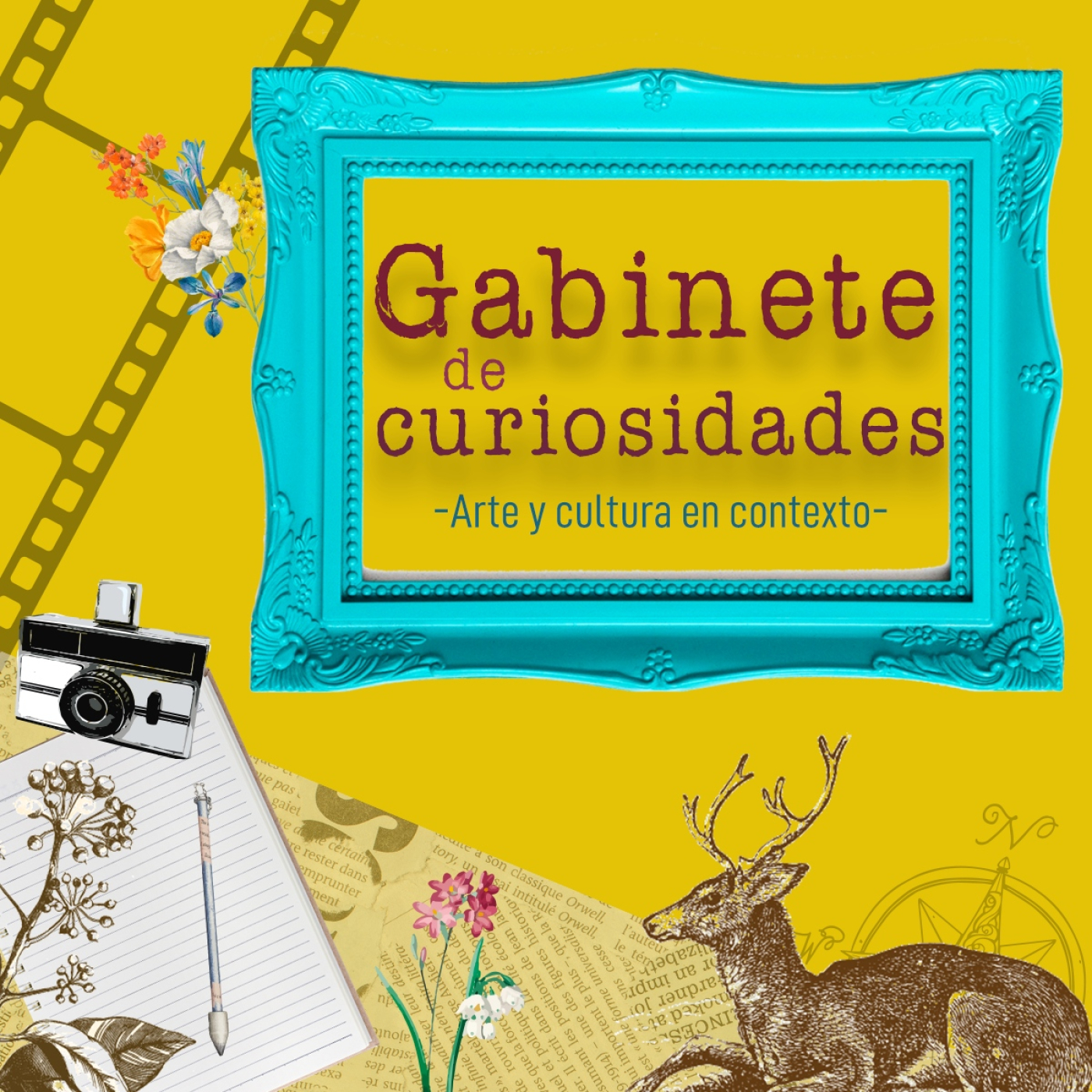
Gabinete de curiosidades“Entre la Laguna y los saberes: El Proyecto Casa Biocultural”En este capítulo exploramos el estado actual del proyecto Casa Biocultural de Fúquene de la Fundación Humedales, una apuesta colectiva que ha nacido del diálogo profundo entre arte, comunidad y territorio. Desde las prácticas sensibles, las memorias locales y las metodologías colaborativas, este proyecto ha articulado los saberes de la Fundación Humedales con las voces, necesidades y experiencias de las comunidades de la cuenca de la laguna. Hoy buscamos comprender cómo las artes, lo háptico, lo sonoro y lo relacional han abierto caminos para fortalecer las prácticas ambientales, la educación comunitar...
2025-11-2745 min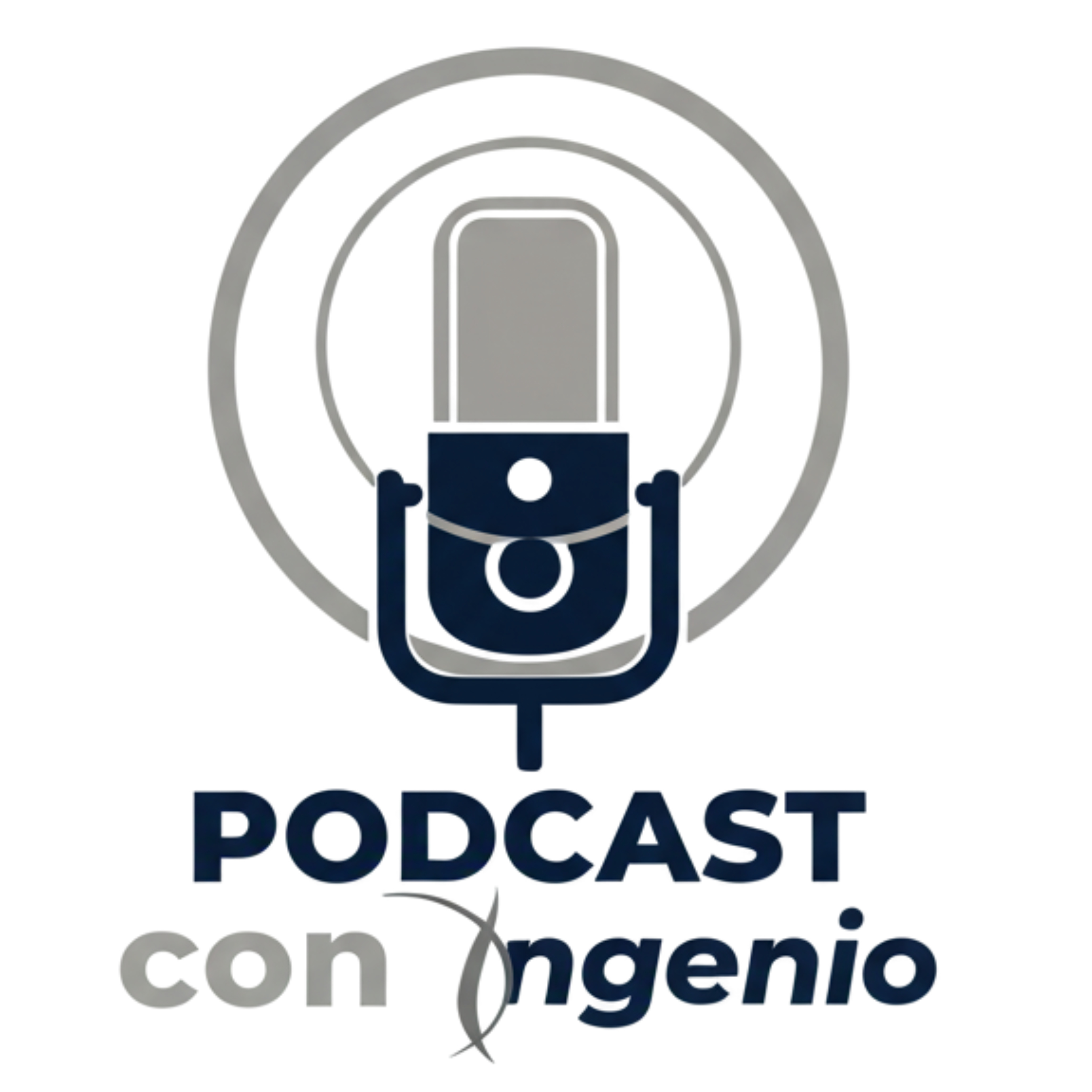
Podcast Con IngenioLiderazgo Regenerativo Innovación BioculturalFreddy Díaz explora el Liderazgo Regenerativo y la Innovación Biocultural como la estrategia de negocio clave para Centroamérica.¿Y si el burnout (76% de tu equipo) y la crisis climática ($320B en costos) no fueran problemas separados? Son síntomas del mismo fallo de diseño: un liderazgo extractivo obsoleto. En este episodio, desglosamos el manual para un nuevo sistema operativo que resuelve ambas crisis simultáneamente. Descubrirás la metáfora del "Líder como Jardinero" y los casos de éxito regional (Wakami, AgroAmerica) que prueban que la regeneración es rentable.En este episodi...
2025-11-2310 min
Saber Más RadioLa Troje: patrimonio biocultural P´urhépechaEn Saber Más exploramos esta semana la riqueza biocultural de las trojes purépechas, esas emblemáticas construcciones de madera que han resguardado durante siglos la memoria, el maíz y la vida comunitaria en la Meseta Purépecha.
Más que arquitectura, las trojes son repositorios de saberes: desde la elección de maderas locales y técnicas de ensamble sin clavos, hasta su orientación y simbolismo dentro del paisaje cultural. Cada una encierra historias, identidad y un profundo vínculo con el territorio.
Hoy, ante la pérdida de materiales tradicionales y de quienes dominan su construcció...
2025-11-1426 min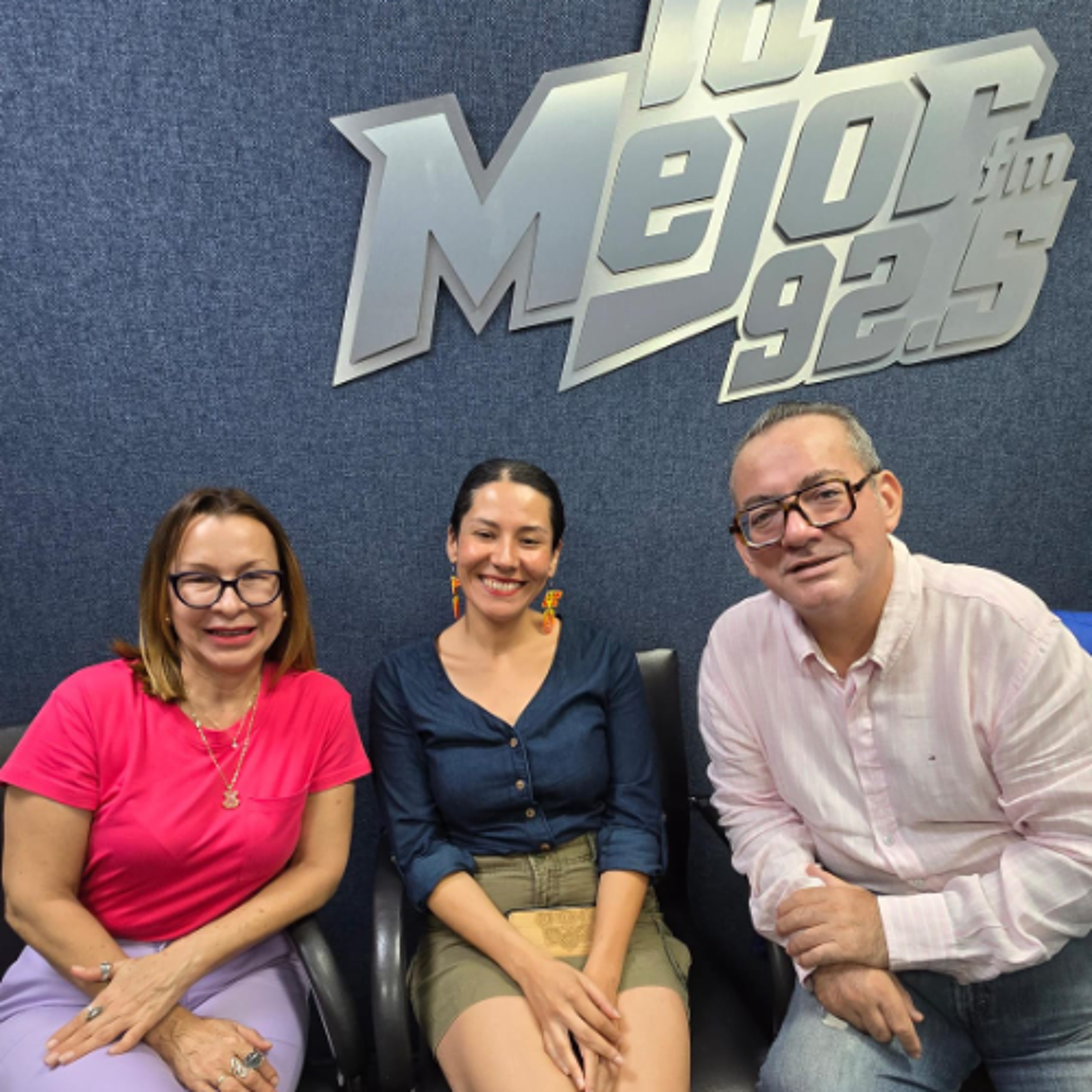
Max Cortés PressAcceso libre a IV Festival Biocultural, el 15 de noviembre en La Campana: Dra. Alana PachecoAcceso libre a IV Festival Biocultural, el 15 de noviembre en La Campana: Dra. Alana Pacheco by Max Cortés Press
2025-11-1116 min
Aquí y Ahora, sesión con invitados.Naturaleza viva: Festival biocultural de Sierra de ÁlvarezEn este episodio especial, nos adentramos en el corazón de San Luis Potosí para celebrar el Festival Biocultural de la Sierra de Álvarez. Este evento es una poderosa manifestación de la unión entre la educación ambiental, la divulgación científica y las tradiciones de sus comunidades.Además también tenemos la invitación a una maravillosa obra de teatro: Las cosas extraordinarias.Sígueme y comparte el podcast FB: ErikaAguilarMeditacion Instagram: erika_aguilar_meditacionPodcast de meditación: Aquí y Ahora. Prácticas demeditación
2025-11-0654 min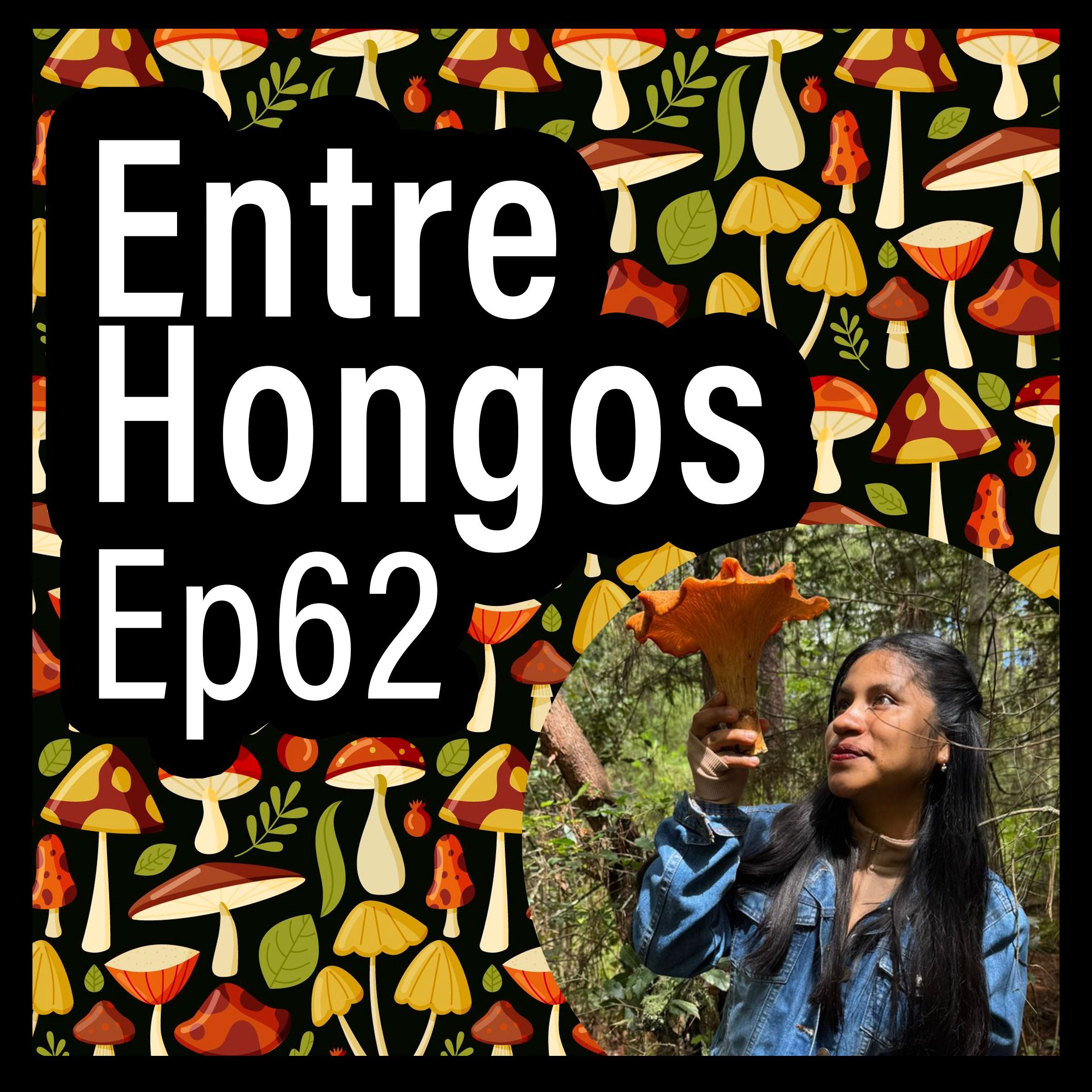
Entre HongosEntre Hongos Ep. 62 - Defensa del patrimonio biocultural de la Mixteca Oaxaqueña (Belén Itahi Bautista)Belén Itahi Bautista Quiroz, conocida en su lengua originaria como Ñaa Ñuu Sauu, es originaria de
Ndoyocoyo, San Esteban Atatlahuca, Oaxaca. Proviene de una familia con generaciones dedicadas a la
recolección de hongos silvestres comestibles, quelites e insectos, y desde muy pequeña desarrolló una
conexión profunda con la tierra. “Desde muy chiquita jugaba con hongos; tenía siete años y ya sabía
cuáles se comían, pero no sabía por qué unos sí y otros no, ni cuál era su función en el ecosistema”,
recuerda.
Su filosofía parte de un principio de recipr...
2025-10-2157 min
Estamos Al AireCuetzalan será sede del 1er Encuentro de Gestión BioculturalEl Dr. Luis Enrique Fernández Lomelín, Coordinador de la Licenciatura en Gestión Territorial e Identidad Biocultural del Complejo Regional Nororiental de la BUAP, sede Cuetzalan, compartió detalles del 1er Encuentro de Gestión Biocultural del Territorio y de la 4ª Reunión Nacional de la Red de Patrimonio Biocultural, que se celebrarán bajo el lema: “Reconstruyendo Territorios y Planes de Vida”.¿Por qué no recordamos cuando éramos bebés?La amnesia infantil es la incapacidad de recordar eventos de los primeros años de vida. Se pensaba que se debía a la falta de lenguaje o conciencia de sí m...
2025-10-021h 48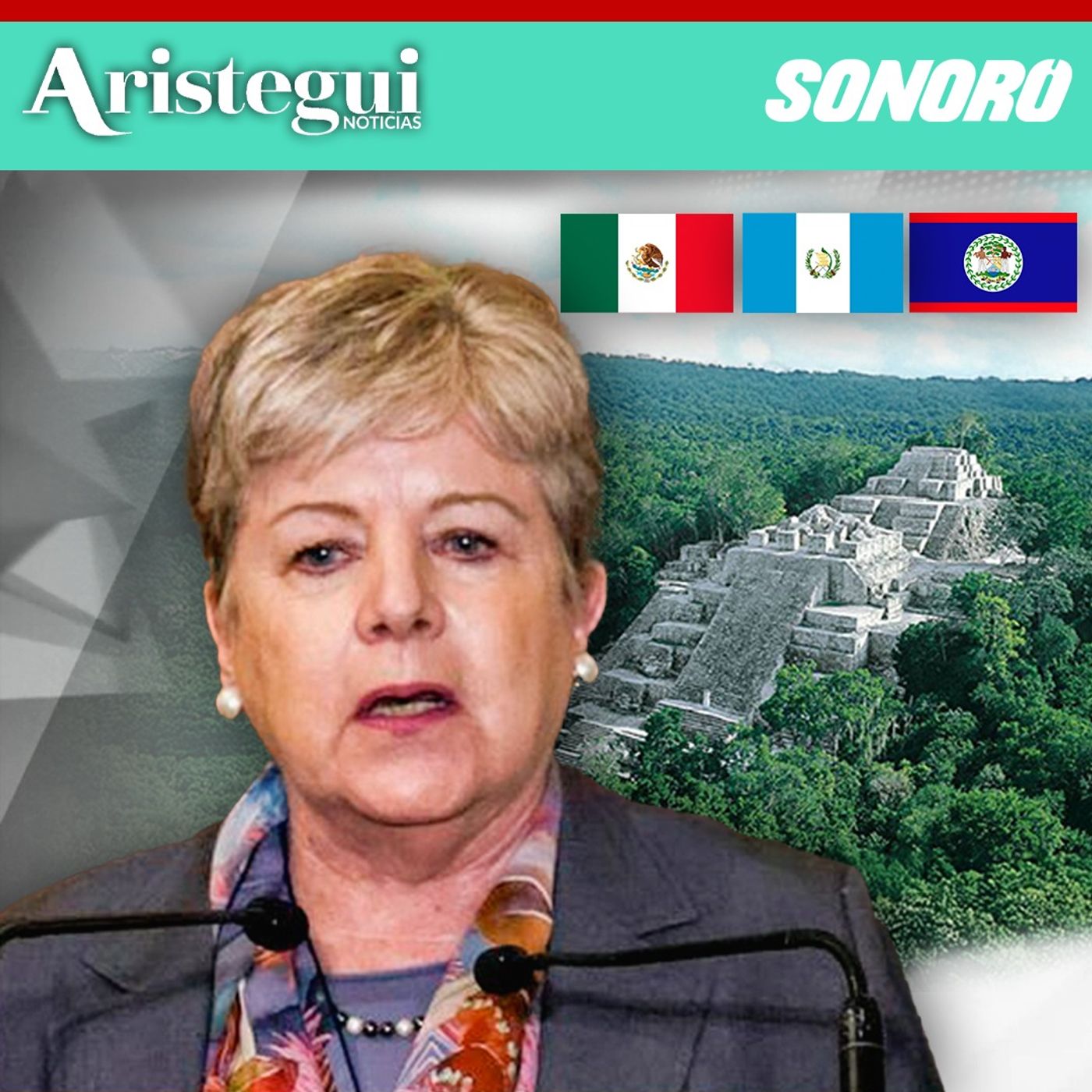
Aristegui Noticias PodcastEntrevista: Corredor Biocultural Gran Selva Maya será la segunda reserva más importante de América: BárcenaAlicia Bárcena celebró en Aristegui En Vivo la creación del corredor biocultural Gran Selva Maya, un logro histórico que protege 5.7 millones de hectáreas entre México, Guatemala y Belice. Destacó que esta área resguarda 7000 especies de flora y fauna, vestigios arqueológicos y reservas de carbono. Señaló que es la segunda reserva más importante de América después del Amazonas, protegiendo 12 por ciento de la biodiversidad mundial.
2025-08-1820 min
CARTA - Anthropogeny (Audio)CARTA: Biocultural Reproduction: The Human Style of Hyper-cooperation with Barry BoginThe essence of Being Human is the practice of Biocultural Reproduction (BCR). BCR is defined as the set of marriage and kinship based rules for extra-maternal cooperation in the production, feeding, and care of offspring. Human evolution theory needs to explain how people successfully combined a vastly extended period of offspring dependency and delayed reproduction with helpless newborns — with large heads and much body fat (even with problems giving birth) -- a short duration of breast-feeding, an adolescent growth spurt, and vigorous post-menopause valuable grandmothers. Are these characteristics a package or a mosaic? Series: "CARTA - Center for Academic Research an...
2025-06-2317 min
CARTA - Anthropogeny (Video)CARTA: Biocultural Reproduction: The Human Style of Hyper-cooperation with Barry BoginThe essence of Being Human is the practice of Biocultural Reproduction (BCR). BCR is defined as the set of marriage and kinship based rules for extra-maternal cooperation in the production, feeding, and care of offspring. Human evolution theory needs to explain how people successfully combined a vastly extended period of offspring dependency and delayed reproduction with helpless newborns — with large heads and much body fat (even with problems giving birth) -- a short duration of breast-feeding, an adolescent growth spurt, and vigorous post-menopause valuable grandmothers. Are these characteristics a package or a mosaic? Series: "CARTA - Center for Academic Research an...
2025-06-2317 min
Humanities (Audio)CARTA: Biocultural Reproduction: The Human Style of Hyper-cooperation with Barry BoginThe essence of Being Human is the practice of Biocultural Reproduction (BCR). BCR is defined as the set of marriage and kinship based rules for extra-maternal cooperation in the production, feeding, and care of offspring. Human evolution theory needs to explain how people successfully combined a vastly extended period of offspring dependency and delayed reproduction with helpless newborns — with large heads and much body fat (even with problems giving birth) -- a short duration of breast-feeding, an adolescent growth spurt, and vigorous post-menopause valuable grandmothers. Are these characteristics a package or a mosaic? Series: "CARTA - Center for Academic Research an...
2025-06-2317 min
Humanities (Video)CARTA: Biocultural Reproduction: The Human Style of Hyper-cooperation with Barry BoginThe essence of Being Human is the practice of Biocultural Reproduction (BCR). BCR is defined as the set of marriage and kinship based rules for extra-maternal cooperation in the production, feeding, and care of offspring. Human evolution theory needs to explain how people successfully combined a vastly extended period of offspring dependency and delayed reproduction with helpless newborns — with large heads and much body fat (even with problems giving birth) -- a short duration of breast-feeding, an adolescent growth spurt, and vigorous post-menopause valuable grandmothers. Are these characteristics a package or a mosaic? Series: "CARTA - Center for Academic Research an...
2025-06-2317 min
Science (Audio)CARTA: Biocultural Reproduction: The Human Style of Hyper-cooperation with Barry BoginThe essence of Being Human is the practice of Biocultural Reproduction (BCR). BCR is defined as the set of marriage and kinship based rules for extra-maternal cooperation in the production, feeding, and care of offspring. Human evolution theory needs to explain how people successfully combined a vastly extended period of offspring dependency and delayed reproduction with helpless newborns — with large heads and much body fat (even with problems giving birth) -- a short duration of breast-feeding, an adolescent growth spurt, and vigorous post-menopause valuable grandmothers. Are these characteristics a package or a mosaic? Series: "CARTA - Center for Academic Research an...
2025-06-2317 min
Science (Video)CARTA: Biocultural Reproduction: The Human Style of Hyper-cooperation with Barry BoginThe essence of Being Human is the practice of Biocultural Reproduction (BCR). BCR is defined as the set of marriage and kinship based rules for extra-maternal cooperation in the production, feeding, and care of offspring. Human evolution theory needs to explain how people successfully combined a vastly extended period of offspring dependency and delayed reproduction with helpless newborns — with large heads and much body fat (even with problems giving birth) -- a short duration of breast-feeding, an adolescent growth spurt, and vigorous post-menopause valuable grandmothers. Are these characteristics a package or a mosaic? Series: "CARTA - Center for Academic Research an...
2025-06-2317 min
University of California Audio Podcasts (Audio)CARTA: Biocultural Reproduction: The Human Style of Hyper-cooperation with Barry BoginThe essence of Being Human is the practice of Biocultural Reproduction (BCR). BCR is defined as the set of marriage and kinship based rules for extra-maternal cooperation in the production, feeding, and care of offspring. Human evolution theory needs to explain how people successfully combined a vastly extended period of offspring dependency and delayed reproduction with helpless newborns — with large heads and much body fat (even with problems giving birth) -- a short duration of breast-feeding, an adolescent growth spurt, and vigorous post-menopause valuable grandmothers. Are these characteristics a package or a mosaic? Series: "CARTA - Center for Academic Research an...
2025-06-2317 min
University of California Video Podcasts (Video)CARTA: Biocultural Reproduction: The Human Style of Hyper-cooperation with Barry BoginThe essence of Being Human is the practice of Biocultural Reproduction (BCR). BCR is defined as the set of marriage and kinship based rules for extra-maternal cooperation in the production, feeding, and care of offspring. Human evolution theory needs to explain how people successfully combined a vastly extended period of offspring dependency and delayed reproduction with helpless newborns — with large heads and much body fat (even with problems giving birth) -- a short duration of breast-feeding, an adolescent growth spurt, and vigorous post-menopause valuable grandmothers. Are these characteristics a package or a mosaic? Series: "CARTA - Center for Academic Research an...
2025-06-2317 min
UC San Diego (Video)CARTA: Biocultural Reproduction: The Human Style of Hyper-cooperation with Barry BoginThe essence of Being Human is the practice of Biocultural Reproduction (BCR). BCR is defined as the set of marriage and kinship based rules for extra-maternal cooperation in the production, feeding, and care of offspring. Human evolution theory needs to explain how people successfully combined a vastly extended period of offspring dependency and delayed reproduction with helpless newborns — with large heads and much body fat (even with problems giving birth) -- a short duration of breast-feeding, an adolescent growth spurt, and vigorous post-menopause valuable grandmothers. Are these characteristics a package or a mosaic? Series: "CARTA - Center for Academic Research an...
2025-06-2317 min
UC San Diego (Audio)CARTA: Biocultural Reproduction: The Human Style of Hyper-cooperation with Barry BoginThe essence of Being Human is the practice of Biocultural Reproduction (BCR). BCR is defined as the set of marriage and kinship based rules for extra-maternal cooperation in the production, feeding, and care of offspring. Human evolution theory needs to explain how people successfully combined a vastly extended period of offspring dependency and delayed reproduction with helpless newborns — with large heads and much body fat (even with problems giving birth) -- a short duration of breast-feeding, an adolescent growth spurt, and vigorous post-menopause valuable grandmothers. Are these characteristics a package or a mosaic? Series: "CARTA - Center for Academic Research an...
2025-06-2317 min
Science (Audio)CARTA: Biocultural Reproduction: The Human Style of Hyper-cooperation with Barry BoginThe essence of Being Human is the practice of Biocultural Reproduction (BCR). BCR is defined as the set of marriage and kinship based rules for extra-maternal cooperation in the production, feeding, and care of offspring. Human evolution theory needs to explain how people successfully combined a vastly extended period of offspring dependency and delayed reproduction with helpless newborns — with large heads and much body fat (even with problems giving birth) -- a short duration of breast-feeding, an adolescent growth spurt, and vigorous post-menopause valuable grandmothers. Are these characteristics a package or a mosaic? Series: "CARTA - Center for Academic Research an...
2025-06-2317 min
RADIO ANIMALISTA ACTIVISTA169. ENSAYO EXPLORATORIO - PATRIMONIO BIOCULTURAL - ACTIVISMO ANIMALISTAEn el Doctorado en Diseño, Arte y Ciencia de la Universidad de Bogotá Jorge Tadeo Lozano, se tiene el seminario DAC dirigido por la Dra. Silvia Buitrago Guzmán, realizadora de cine y televisión de la Universidad Nacional de Colombia, Magíster en Comunicación. Pontificia Universidad Javeriana y Doctora en Ciencias Sociales y Humanas de la Pontificia Universidad Javeriana. El seminario DAC es un espacio académico interdisciplinar de reflexión entre expertos internacionales entre Diseño, Arte y Ciencia, abordando problemas contemporáneos, esta catedra es gestionado en red entre el Museo de Arte Contemporáneo de Chil...
2025-05-1857 min
Radio Universidad de ChileSubjetividades Constituyentes - Doctorado en Psicología Uchile e investigación cómo niños y niñas de Puerto Williams aprenden y comparten conocimientos sobre el territorio y la diversidad biocultural"Hoy hablaremos del Doctorado en Psicología Uchile, que abrió sus puertas hace 25 años, siendo el primer programa de doctorado en Psicología de Chile, y concretamente del Proyecto doctoral de Benjamín Pujadas: “Comprender cómo niños y niñas de Puerto Williams aprenden y comparten conocimientos sobre el territorio y la diversidad biocultural”, junto a Andrea Valdivia, antropóloga y profesora asociada a la investigación.
Y en Racconto, Gonzalo Miguez, conversa sobre la Universidad de O'Higgins y la carrera de psicología, con el psicólogo y profesor asistente de esa casas de estudios Javier Bustamante."
2025-04-0845 min
Tourism Geographies PodcastSignificance of biocultural heritage, cultural landscape and islandness for responsible tourism: a Knoydart case studyhttps://www.tandfonline.com/doi/full/10.1080/14616688.2024.2325943AbstractThe COVID-19 pandemic, environmental crisis and increasing growth in tourism prompted interest in more responsible tourism. So called responsible tourism (RT) entails diverse ingredients and an aim of this research is to understand if residents of community owned nature-rich land believe they have responsibility to share with visitors, or if their focus is shifting toward prioritising environmental conservation and or personal wellbeing. In this case study a unique perception of RT emerges in Knoydart Scotland, born from a pronounced awareness of biocultural heritage and a...
2024-11-2223 min
Forum on Religion and Ecology: Spotlights5.6 Biocultural Conservation with Ricardo RozziThis episode features Ricardo Rozzi, PhD, a Chilean ecologist and philosopher who is a professor at the University of North Texas and the Universidad de Magallanes (UMAG). His research combines ecology and philosophy through the study of the interrelations between the ways of knowing and inhabiting the natural world, proposing a dynamic continuous reciprocal feedback between both domains. We discuss his work with biocultural conservation, field environmental philosophy, and liberation theology, with particular attention to the unique cultural, ecological, and political context of Chile and Latin America.
2024-11-181h 05
Heritage MezcalAgave's Biocultural HeritageIn this episode on Heritage Mezcal, I had the opportunity to have a delightful conversation with Eric Zandona. He is an incredibly booze-informed gentleman, and the organizer of the ADI’S International Spirits Competition, which, if you were to ask me, offers a great chance for brands of all sizes to break into the US market. Especially if you have something that may shock the nerds. They are not sponsoring this episode, but after being invited a few times as a judge, I can say that I’ve never met a group of people that cared about and loved spir...
2024-11-0645 min
The Dissenter#1010 Michael Price: The Biocultural Evolution of Religion, and Universal Darwinism******Support the channel******
Patreon: https://www.patreon.com/thedissenter
PayPal: paypal.me/thedissenter
PayPal Subscription 1 Dollar: https://tinyurl.com/yb3acuuy
PayPal Subscription 3 Dollars: https://tinyurl.com/ybn6bg9l
PayPal Subscription 5 Dollars: https://tinyurl.com/ycmr9gpz
PayPal Subscription 10 Dollars: https://tinyurl.com/y9r3fc9m
PayPal Subscription 20 Dollars: https://tinyurl.com/y95uvkao
******Follow me on******
Website: https://www.thedissenter.net/
The Dissenter Goodreads list: https://shorturl.at/7BMoB
Facebook: https://www.f...
2024-10-241h 01
My Blog » demo4Read or Download EPub Nutritional Anthropology: Biocultural Perspectives on Food and Nutrition by Edited by Darna L. Dufour on IphoneLink To Download : https://recomendedbook.com/?book=0199738149 To Download or Read Nutritional Anthropology: Biocultural Perspectives on Food and Nutrition by Edited by Darna L. Dufour Available versions: EPUB, PDF, MOBI, DOC, Kindle, Audiobook, etc. Reading Nutritional Anthropology: Biocultural Perspectives on Food and Nutrition Download Nutritional Anthropology: Biocultural Perspectives on Food and Nutrition PDF/EBooks Nutritional Anthropology: Biocultural Perspectives on […]
2024-10-0400 min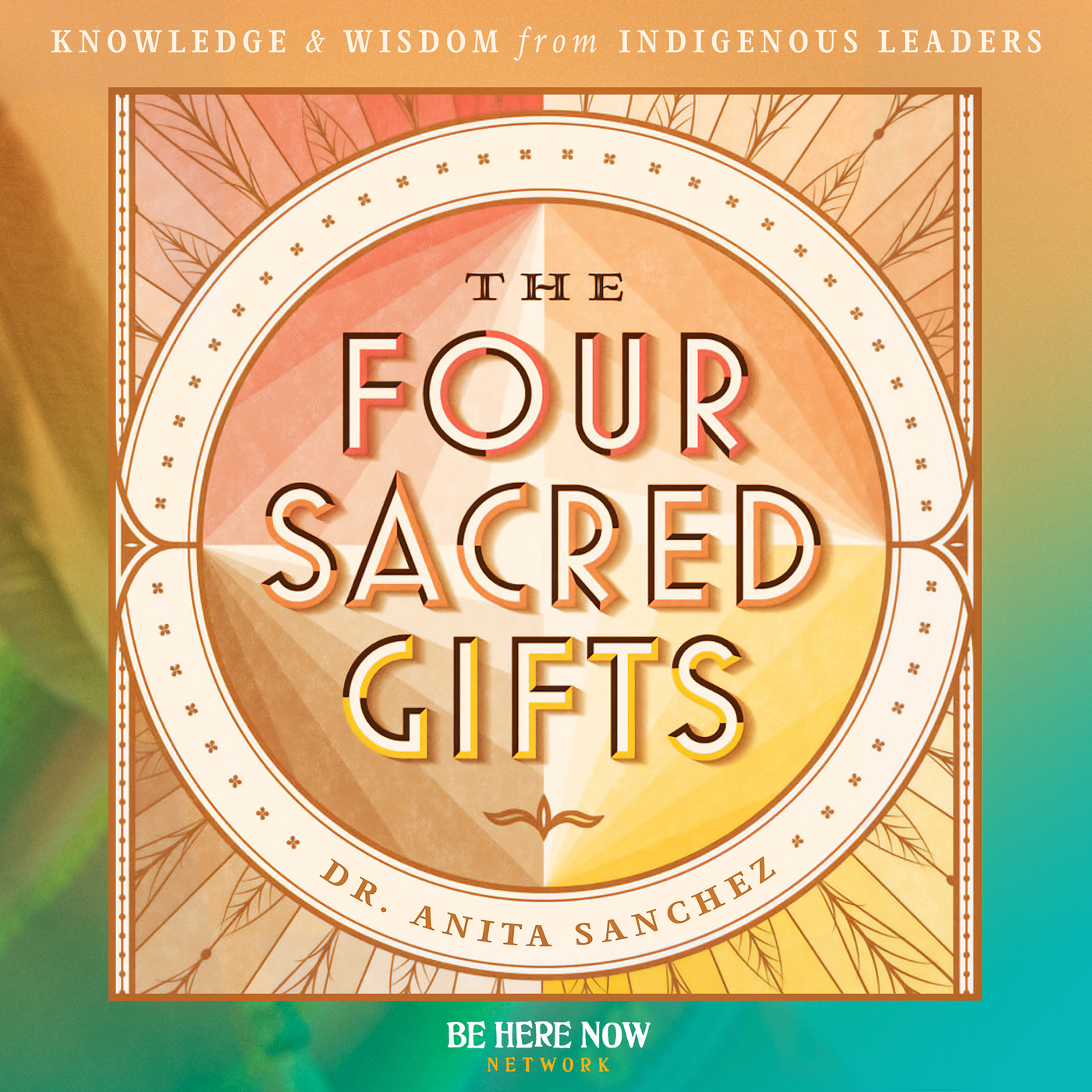
The Four Sacred Gifts Podcast with Dr. Anita SanchezEp. 2 - Biocultural Heritage with Mindahi Bastida, Otomi-Toltec Elder from MexicoFocusing on environmental impacts, Toltec elder Mindahi Bastida shares wisdom on biocultural diversity and protecting all forms of life.This time on The Four Sacred Gifts, Anita and Mindahi discuss:The impact of industrialization and over-exploitation of water in MexicoSpiritual and material destructionWetland restorations and a mermaid entityWhy Indigenous wisdom is so importantThe earth as our first motherLearning how to live in a sacred relationship with all beingsListening to nature and realizing our onenessSacred sites around the world that contain special energyMaking an effort to protect sacred areasTaking care of all life sources so that the...
2024-09-121h 02
The Self Help AntidoteThriving Beyond Survival: Dr. Jon Marion on the Biocultural Path to FulfillmentSend us a textIn this captivating episode of the Self Help Antidote, we're thrilled to welcome Dr. Jon Marion, a distinguished expert with a PhD in psychological anthropology, a former instructor at the Somatic School in London, and a past chapter president of the International Coach Federation (ICF). Dr. Marion brings his profound insights into the complex interplay between individual growth, societal progress, and the essence of thriving in an ever-evolving world.Diving deep into the heart of what it means to truly progress and come together as a society, Dr. Marion challenges the...
2024-02-1348 min
Frecuencia AmbientalEpisodio 176. Festival del Paisaje BioculturalEntrevista con Noé Castellanos, Coordinador del Paisaje Biocultural de la Sierra Occidental de Jalisco
Fecha de transmisión: 25 noviembre de 2023
Frecuencia Ambiental es un programa radiofónico que tiene el objetivo de comunicar temas ambientales con un enfoque educativo en formato de entrevista. Todas las piezas de audio que se incluyen cuentan con sus créditos correspondientes, mencionados al término de cada pieza musical, a través de este programa radiofónico no se obtiene compensación monetaria y es de origen público, es decir, no tiene fines de lucro y no incluye anuncios c...
2023-11-2652 min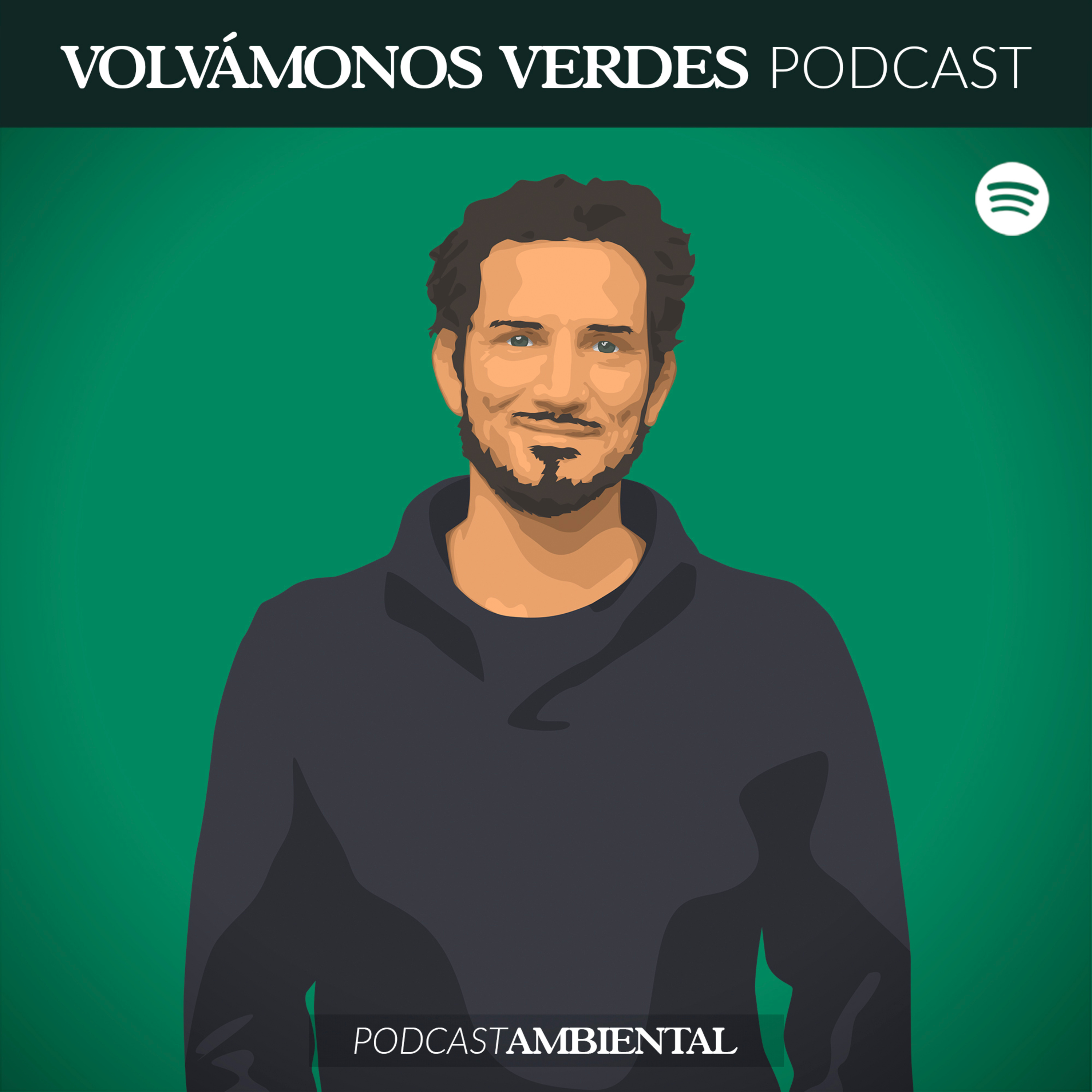
Volvámonos VerdesTomás Ibarra | La conexión entre cultura y naturaleza | 57En la segunda conversación que tuvimos con Tomás Ibarra nos centramos en aspectos más sociales. Tomás nos explicó el concepto de agroecología y el valor de la agricultura familiar campesina para alcanzar una mayor soberanía alimentaria y resiliencia. Nos habló del hermoso concepto de memoria biocultural y cómo podemos reconstruirla. Entendimos que cultura y naturaleza se construyen y deconstruyen mutuamente, y que el ser humano es un agente que puede aportar a la heterogenización de los ecosistemas y a crear mayor biodiversidad.
NECESITAMOS TU APOYO:
¿Te gustaría apoyar el...
2023-06-121h 07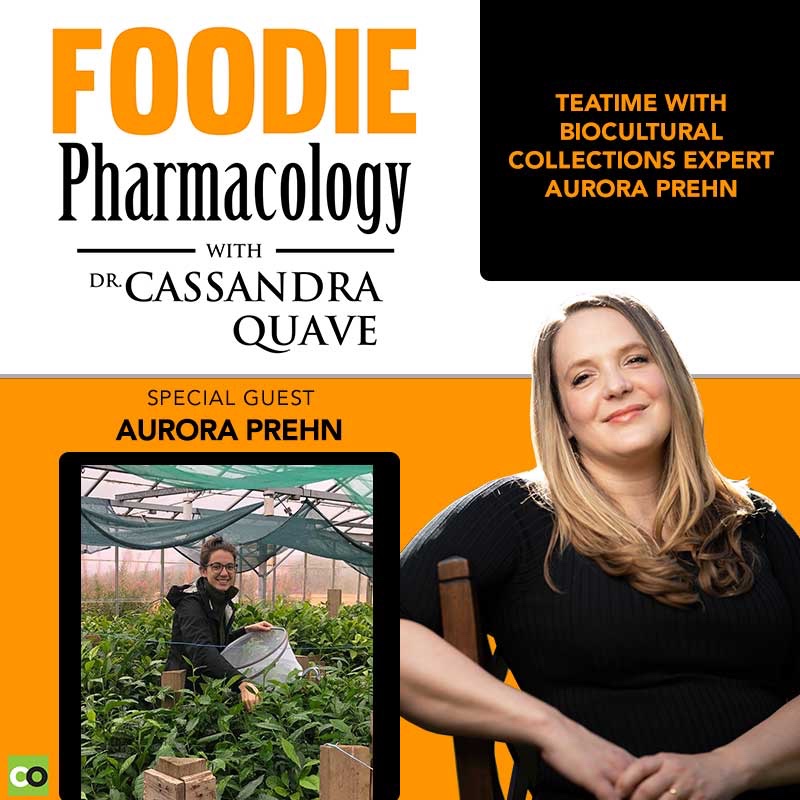
Foodie Pharmacology PodcastTeatime with Biocultural Collections Expert Aurora PrehnAre you a tea-lover? There is a dazzling array of tea types out there to taste—but you may be wondering where these teas come from and how they are made. This week, I speak with Aurora Prehn, an expert tea taster to learn more about the flavor and history of different teas. Aurora is the Biocultural Collection Manager in the William L. Brown Center at the Missouri Botanical Garden in St. Louis where she has been since January 2021.
#teatime #tea #podcast #greentea #matcha
2023-06-0545 min
Frecuencia AmbientalEpisodio 154. Paisaje Biocultural en el marco del Día Internacional de la Diversidad BiológicaEntrevista con Noé Castellanos Ramos, Coordinador del Paisaje Biocultural y José Huallarzaba, Especialista en Etnobotánica y responsable de monitoreo ambiental
Fecha de transmisión: 27 mayo de 2023
Frecuencia Ambiental es un programa radiofónico que tiene el objetivo de comunicar temas ambientales con un enfoque educativo en formato de entrevista. Todas las piezas de audio que se incluyen cuentan con sus créditos correspondientes, mencionados al término de cada pieza musical, a través de este programa radiofónico no se obtiene compensación monetaria y es de origen público, es decir, no tiene fines...
2023-05-2852 min
American Spaces On AirNº25 - "Conservación biocultural en territorio subantártico chileno" - Ricardo Rozzi🌎 Conservación Biocultural🌿, ética ambiental🔍 y bienestar humano. ¿Qué sabemos de los "centinelas" del cambio climático?🐦🪰
➡ Conoce el trabajo del Dr. Ricardo Rozzi, filósofo y biólogo chileno, profesor titular en la @unt (University of North Texas)🇺🇸 y en la @udemagallanes en nuestro podcast N° 25 de American Spaces On Air, una producción en conjunto entre el @ichnorteamericano y el @aast.utalca con el apoyo de la red de American Spaces en Chile y la @embajadaeeuucl
📆 Lunes 23 de Enero, ⏰15:00 hrs.
💻Vía Facebook Live 👉 EN NUESTRA BIO! 🔗
Te esperamos!!! #AmericanSpacesOnAir
Este Podcast cuenta c...
2023-01-2348 min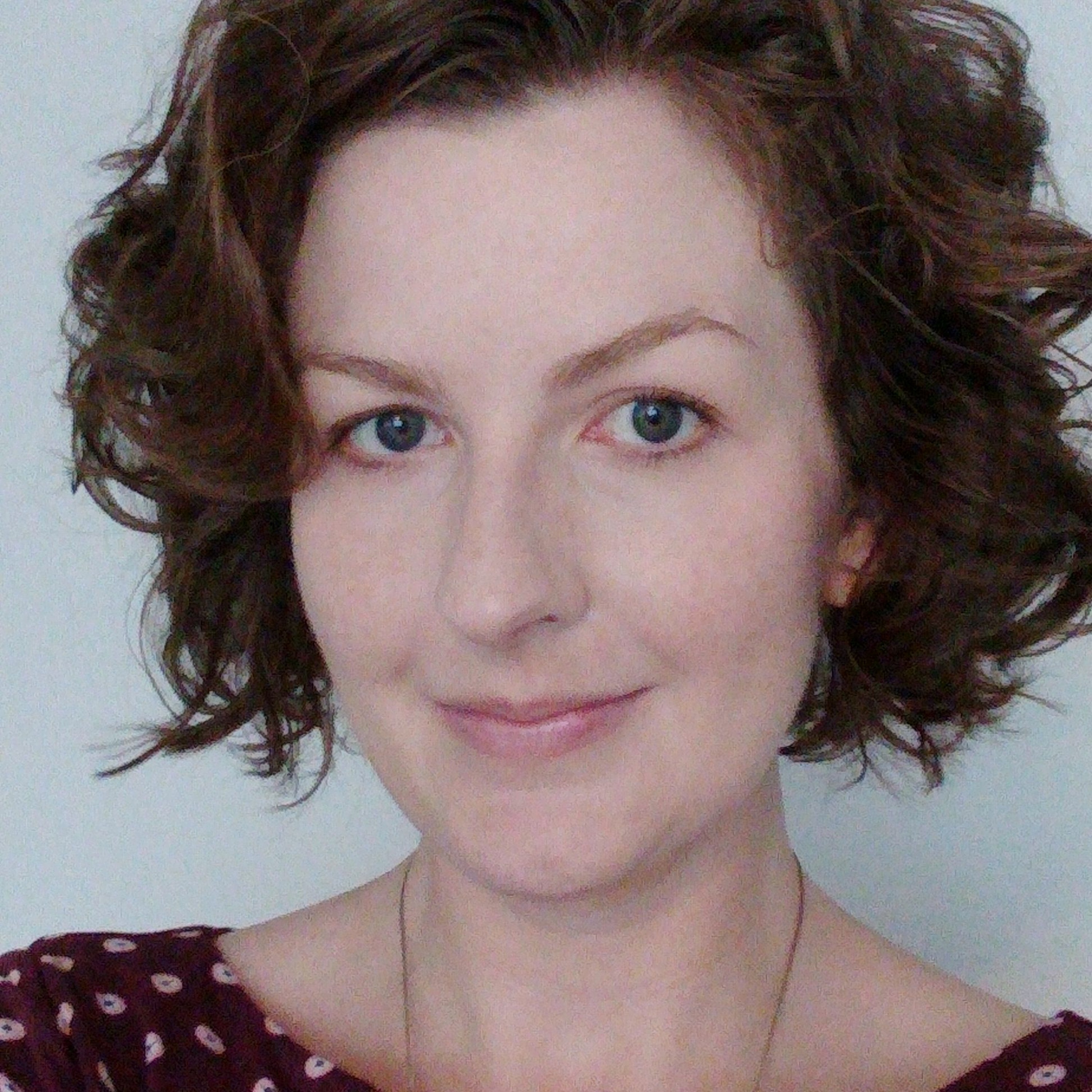
Sausage of ScienceSoS 182: Dr. Elizabeth Miller and the necessity of a Biocultural ApproachChris and Cara discuss underappreciated athletes before unpacking Big Data with Dr. Elizabeth Miller, an Associate Professor at the University of South Florida. Dr. Miller is a biological anthropologist interested in evolutionary and biocultural approaches to maternal and child health. Her research program spans the study of human milk composition and infant feeding practices, infant immune function in diverse ecologies, maternal iron homeostasis, and early microbiome maturation.
In this episode, she breaks down her use of a biocultural approach to early growth using data from NHANES to test the effects of social inequalities on birth weight and later height and...
2023-01-0445 min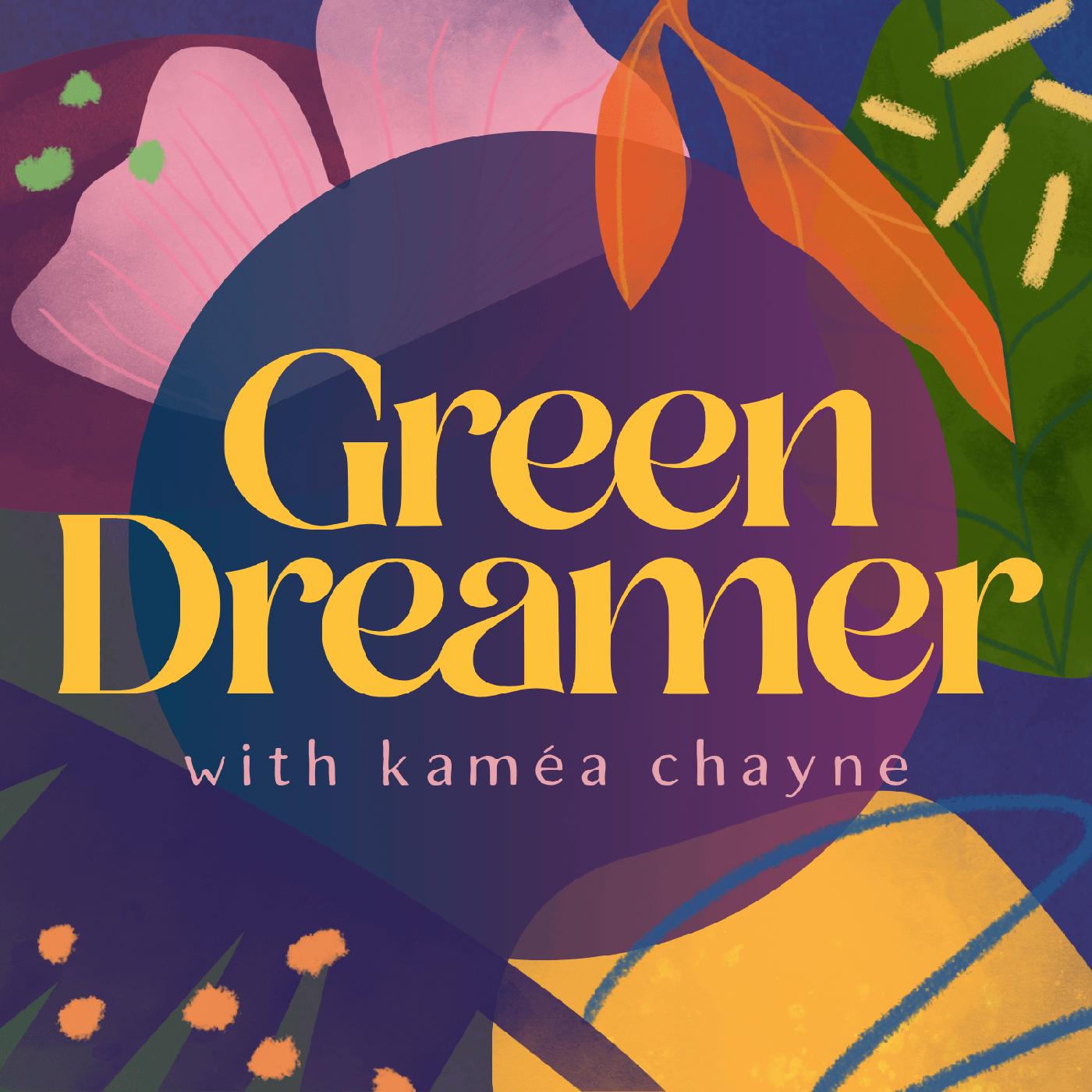
Over The Wire Podcast362) Catriona Sandilands: Botanical colonialism and biocultural histories Podcast: Green Dreamer: Seeding change towards collective healing, sustainability, regeneration (LS 56 · TOP 0.5% what is this?)Episode: 362) Catriona Sandilands: Botanical colonialism and biocultural historiesPub date: 2022-06-28Notes from Over The Wire Podcast:An exploration of cultivating plurality within the stories we tell, remembering histories of reciprocity coming from Western traditions, the connection between how we relate to the more-than-human world and our views of and experiences with sexuality, and more.Get Podcast Transcript →powered by Listen411 - fast audio-to-text and summarization"We sometimes forget that the...
2022-07-0944 min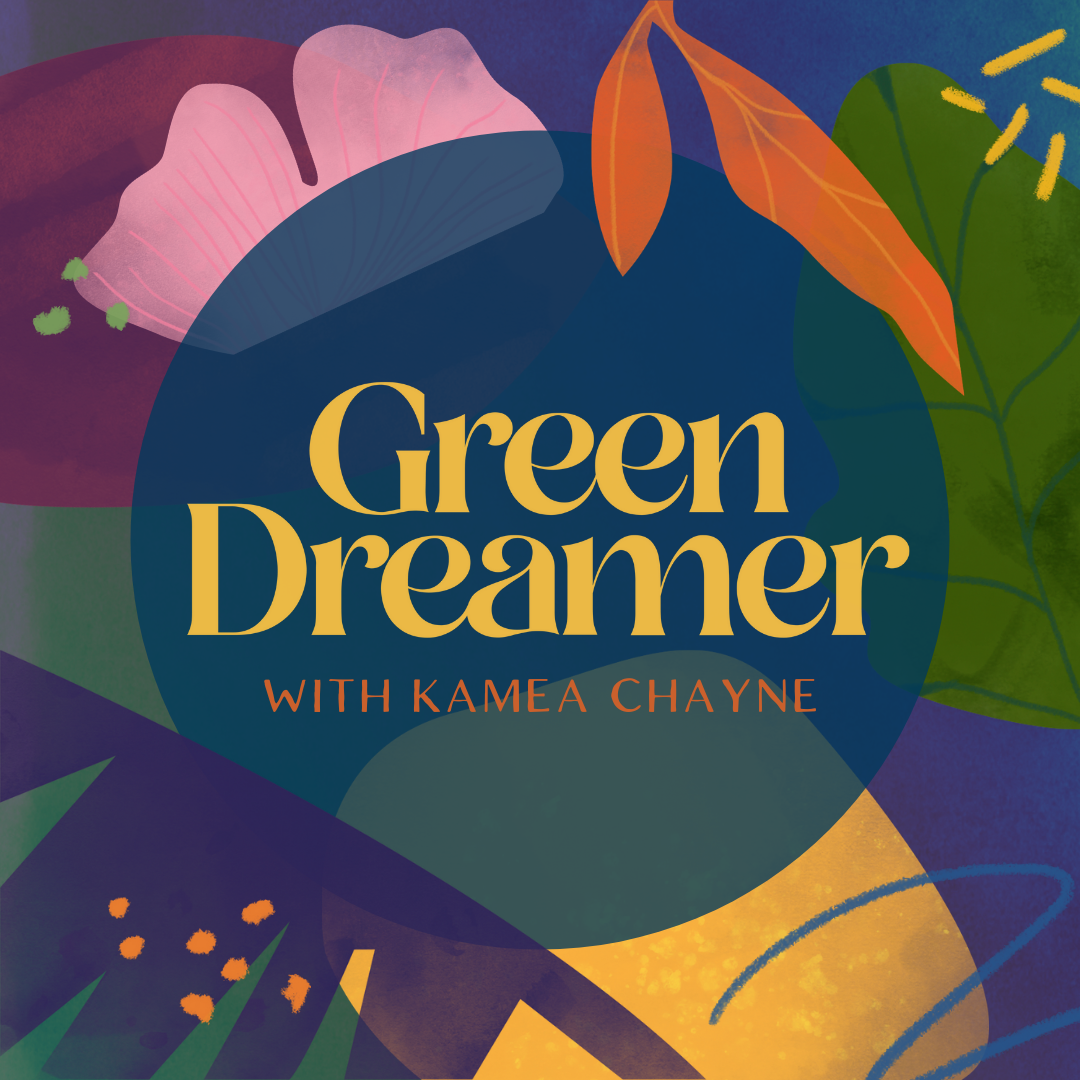
Green Dreamer: Seeding change towards collective healing, sustainability, regeneration362) Catriona Sandilands: Botanical colonialism and biocultural histories"We sometimes forget that the knowledge systems we use to conceptualize the world are not necessarily exactly the same thing as the world that we're conceptualizing. We mistake the model of the model for the thing that is being modeled. We mistake the map for the territory. We mistake the word for the thing." In this episode, we welcome Catriona Sandilands, a professor of environmental arts and justice at the Faculty of Environmental and Urban Change, York University. Having written, edited, or co-edited four books and close to 100 essays and articles, her research areas include queer and...
2022-06-2844 min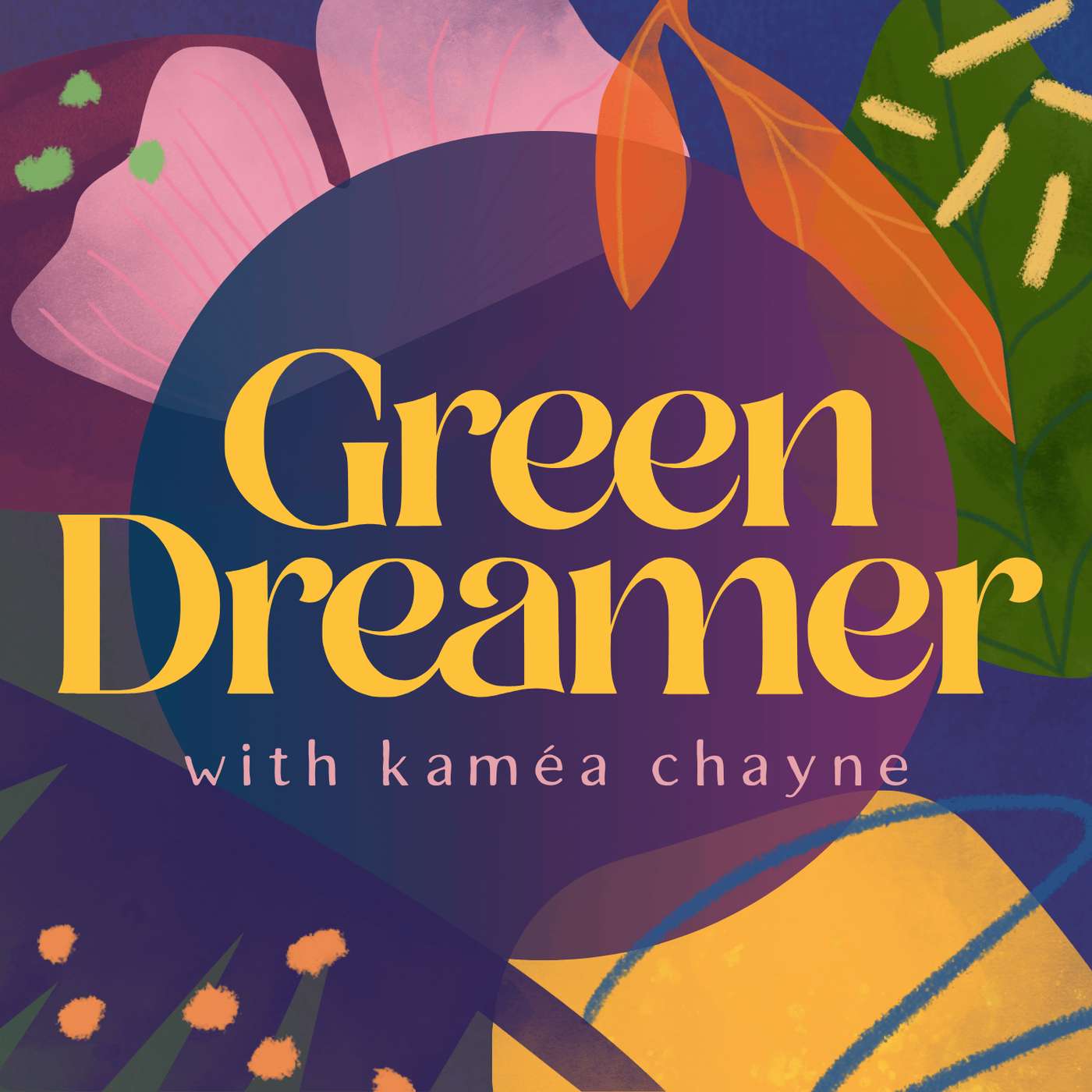
Green Dreamer: Seeding change towards collective healing, sustainability, regeneration362) Catriona Sandilands: Botanical colonialism and biocultural histories"We sometimes forget that the knowledge systems we use to conceptualize the world are not necessarily exactly the same thing as the world that we're conceptualizing. We mistake the model of the model for the thing that is being modeled. We mistake the map for the territory. We mistake the word for the thing." In this episode, we welcome Catriona Sandilands, a professor of environmental arts and justice at the Faculty of Environmental and Urban Change, York University. Having written, edited, or co-edited four books and close to 100 essays and articles, her research areas include queer and...
2022-06-2844 min
"Dear Humanity," a Lovecast with Laura DawnA New Philanthropic Paradigm Supporting Plant Medicine Conservation, Indigenous Sovereignty and Biocultural Diversity with Miram Volat & Cody Swift - 54As the world comes to embrace the healing potential of sacred medicines, how do we ensure the original stewards of these medicines are uplifted, honored, and supported in this search for our collective healing? If we envision a future where indigenous peoples, their medicines, & traditional knowledge are honored, respected, and supported to thrive for generations to come then what specific actions can we take to do no harm, to truly be in right-relationship with these cultures? On today’s episode I speak with Miriam Volat and Cody Swift of The Riverstyx Foundation and the Indigenous Medicine Conservation Fun...
2022-05-261h 29
Center for Mind, Brain, and CultureLecture | Sonya Pritzker | Embodiment, Emotion, and Intimacy at the Intersection of Linguistic and Biocultural AnthropologyDrawing upon data from an ongoing ethnographic study of embodiment and emotion in everyday interaction among cohabitating couples in the U.S., this presentation engages with key theoretical and methodological questions involved in conducting ethnographic research at the intersection of linguistic and biocultural anthropology. My discussion, specifically, focuses on video-recordings of naturally occurring interaction in couples’ homes alongside time-matched psychophysiological data on moment-to-moment shifts in each partners’ respiratory sinus arrhythmia (RSA) —an aspect of heart rate variability (HRV)—gathered with a mobile impedance cardiography device (Mindware Technologies, Ltd. Westerville, OH). In analyzing video data, I demonstrate how the theories and meth...
2022-03-311h 17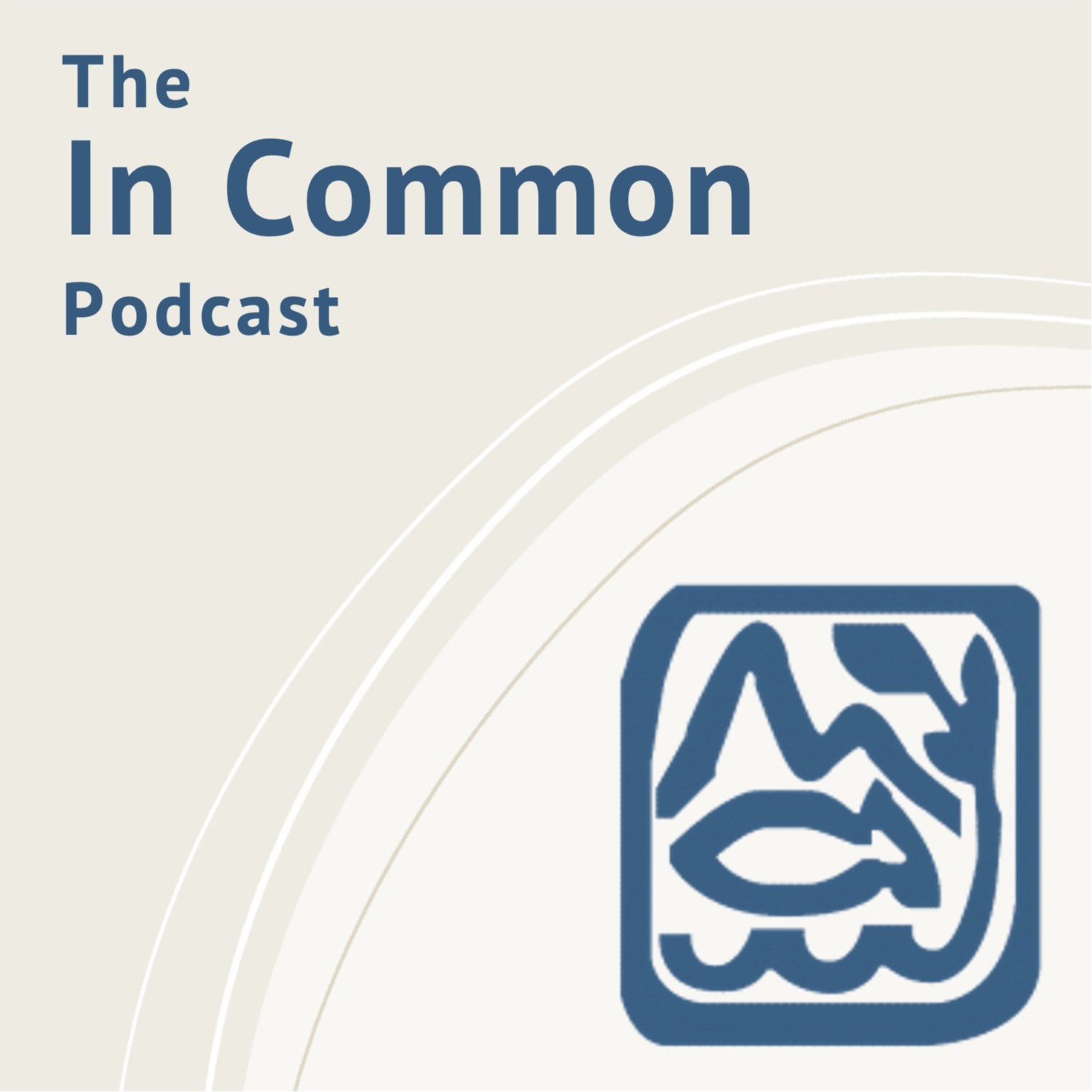
In Common089: Biocultural relationships with Noa Kekuewa LincolnIn this episode Michael speaks with Dr. Noa Kekuewa Lincoln, a professor in the department of tropical plant and soil sciences at the University of Hawaii at Manoa. Noa’s specialty areas include biogeochemistry, ethnography, and archaeology of traditional farming methods. Noa tells Michael about his work on Hawaiian farming systems and the Hawaiian concept of Kuleana as a combination of both a right to and respect for the environment. Noa also talks about the intrinsic power of stories and the importance of interdisciplinary work in enabling us to tell compelling stories about our relationship with the environment.
...
2022-03-141h 10
Save Our PlanetBiocultural Heritage: Preserving Indigenous Knowledge and Food SourcesAgriculture is one of the primary drivers of deforestation and displacement of Indigenous communities worldwide, but do all agricultural practices have such negative effects? Globally, Indigenous communities have begun protecting traditional food sources through biocultural heritage territories. Join our conversation with Krystyna Swiderska about this groundbreaking initiative. Krystyna Swiderska is an expert in traditional knowledge and biocultural heritage of Indigenous peoples and local communities at the International Institute for Environment and Development (iied).
2022-02-1723 min
Sierra Youth PodcastS2E4: Biocultural Diversity with Dr. Luisa MaffiToday we speak with linguist and anthropologist Dr. Luisa Maffi about the concept of biocultural diversity.
In 1995, Dr. Luisa Maffi and David Harmon explored the idea of how cultural diversity, language diversity, and biodiversity are all interconnected. If we were to lose a culture or language then we would see the negative effects in our biodiversity as well. Ultimately, this understanding led Dr. Luisa Maffi, David Harmon and some team members to create Terralingua - an international non-profit dedicated to sustaining the diversity of life in nature and culture.
Dr. Luisa Maffi is now the...
2022-01-2454 min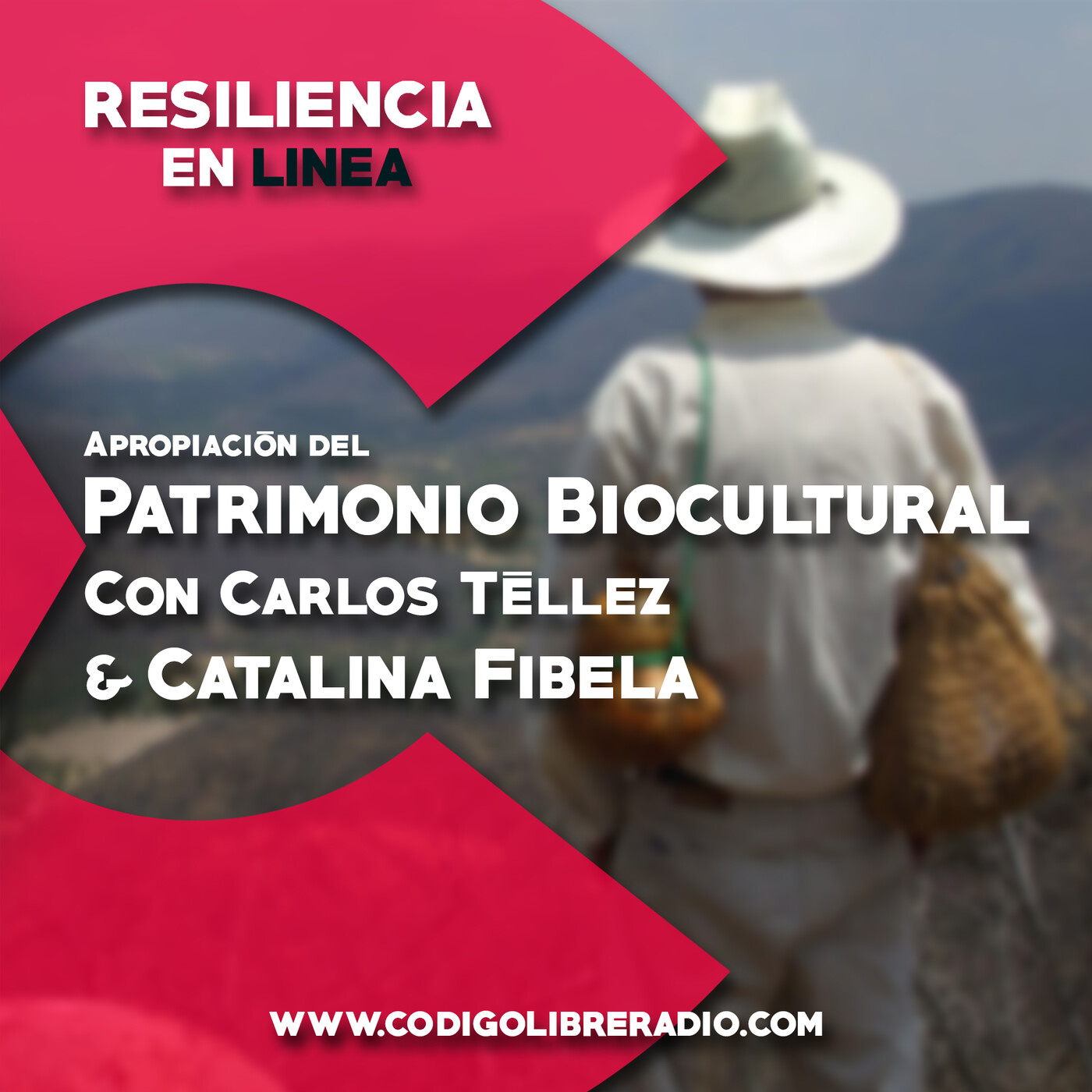
Resiliencia en LineaResiliencia en Linea 97 :: Apropiación del patrimonio bioculturalEn este episodio nos acompaña Catalina Fibela, con quien hablamos sobre "Apropiación del patrimonio biocultural"
A través de su experiencia e investigación, ha encontrado varios antecedentes que llegaron a perjudicar el río Lerma, a raíz de la apropiación y descuido.
Tomar ciertos recursos naturales nos ha ayudado a cubrir algunas necesidades pero que tanto llega a afectar al patrimonio biocultural, es parte de lo que compartimos también en este episodio.
Con Carlos Tellez y Catalina Fibela
#SomosLoQueDecimos
2021-12-101h 02
Resiliencia en LineaResiliencia en Linea 97 :: Apropiación del patrimonio bioculturalEn este episodio nos acompaña Catalina Fibela, con quien hablamos sobre "Apropiación del patrimonio biocultural"
A través de su experiencia e investigación, ha encontrado varios antecedentes que llegaron a perjudicar el río Lerma, a raíz de la apropiación y descuido.
Tomar ciertos recursos naturales nos ha ayudado a cubrir algunas necesidades pero que tanto llega a afectar al patrimonio biocultural, es parte de lo que compartimos también en este episodio.
Con Carlos Tellez y Catalina Fibela
#SomosLoQueDecimos
2021-12-101h 02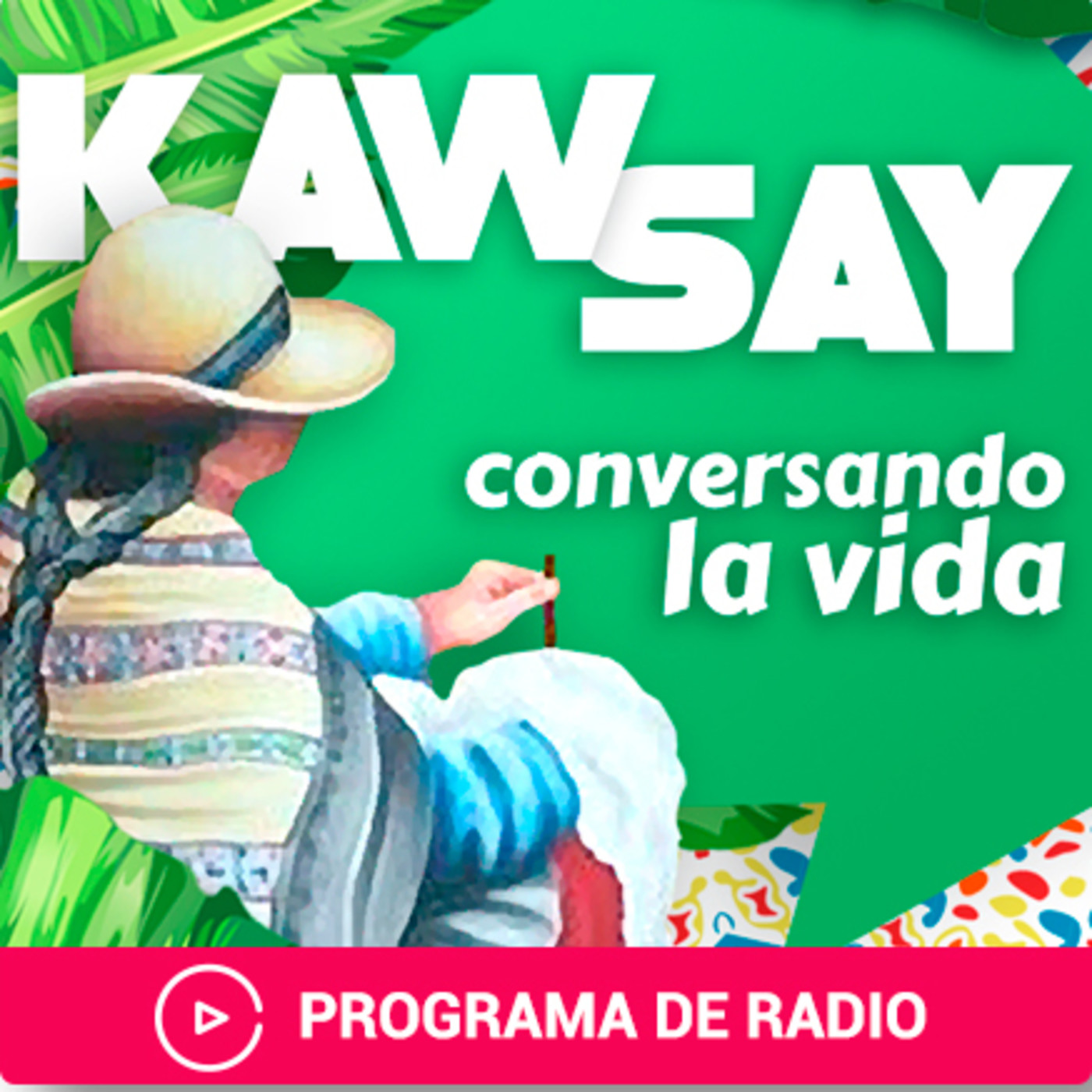
Kawsay. Conversando la Vida12 de octubre, de la reivindicación histórica a la emancipación bioculturalEl Semillero Eco Ancestral de la Fundación Universitaria de Popayán, el Semillero Enseñanza de la biología y diversidad cultural, de la Universidad Pedagógica Nacional, Semilla Nativa-Colombia, Carnaval del Maíz Colombia y Canto al agua, realizan una juntanza por la reivindicación del maíz, como estructurante de toda nuestra Abya Yala. Es un llamado por la renovación de la memoria biocultural, que nos hermana en nuestro continente y por qué no plantearlo, en todo el planeta.
2021-11-0958 min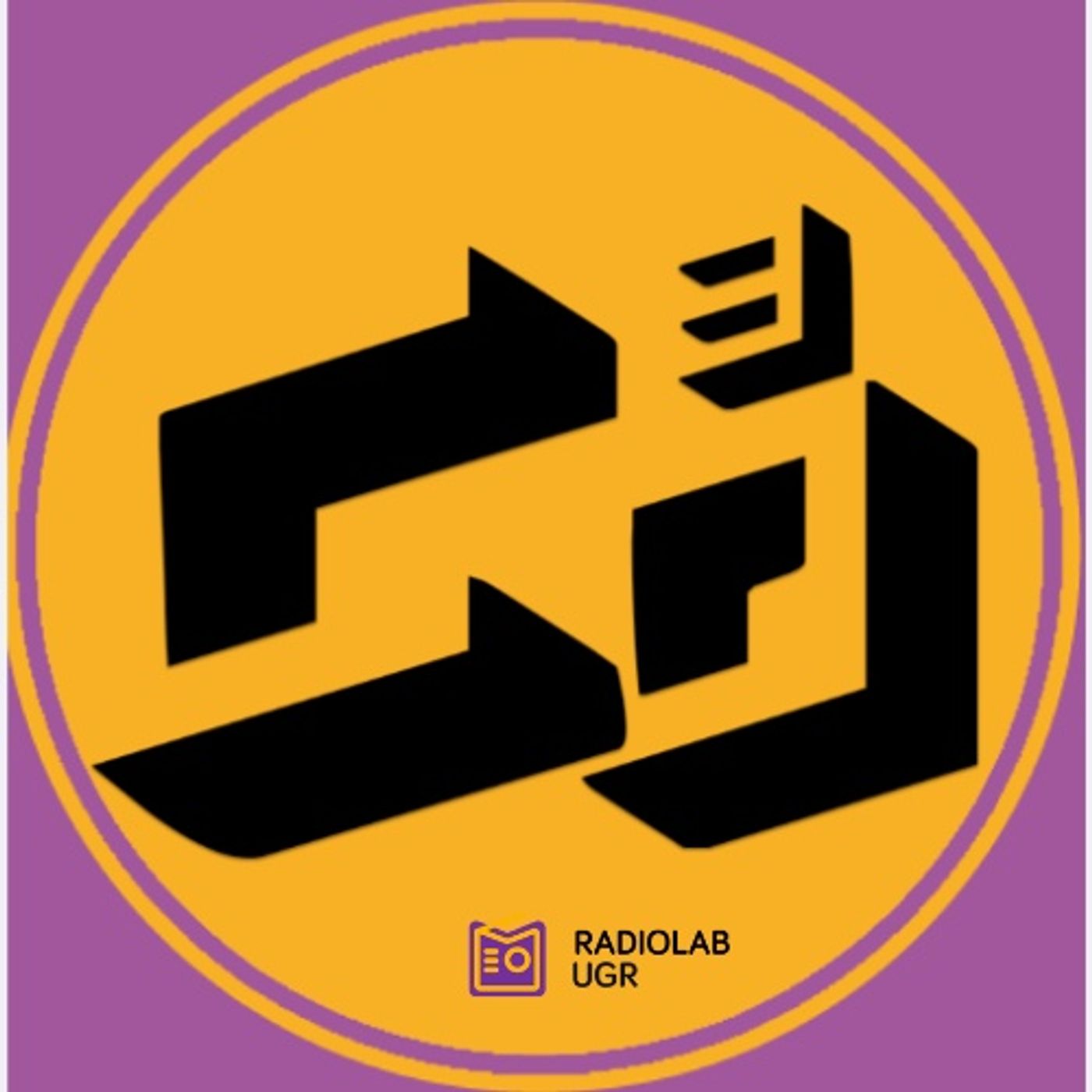
Co3 RadiolabCo3 35 - Acción y regeneración biocultural con Tercer PaisajeTercer Paisaje es un colectivo formado por Arturo Tapia, Fernando Morales, María Rodríguez y Nazaret Expósito. Y más que un proyecto, en palabras del propio Fernando, Tercer Paisaje es un concepto: una nueva forma de relacionarnos con el entorno que habitamos, con los paisajes que nos rodean y que han perdido su identidad; los paisajes inciertos. En este episodio de Co3 hablamos con Fernando Morales, activista climático e investigador, y Arturo Tapia, educador y dinamizador cultural, sobre acción, cambio y regeneración del entorno biocultural.
2021-06-2117 min
FrutíferaRegenerar: ativação da memória biocultural da TerraJardineiros e jardineiras do mundo, o episódio nove “Regenerar: ativação da memória biocultural da Terra”, da segunda temporada, traz o olhar para as transformações sistêmicas das práticas comunitárias e das pessoas com o seu entorno. Juliana Diniz, do IDR (Instituto de Desenvolvimento Regenerativo), participa do episódio e traz uma fala imperdível! Tem também a presença da nossa equipe: nossa consultora de plantas poéticas Diana Graça (@diana.florestaepoesia), Flávia Muniz (flaviamuniz.frutifera) e do nosso diretor musical Rodrigo Sebastian (@odrigosebastian75). Nos ajudem a ampliar nossa visão de mundo compartilhand...
2021-06-0531 min
Oxford Obesity - Unit for Biocultural Variation and Obesity, University of OxfordSarah Bourke, University of Oxford - Cultural determinants of health as a research framework: A case study from Indigenous AustraliaSarah Bourke, of the University of Oxford, talks about 'Cultural determinants of health as a research framework: A case study from Indigenous Australia'
2021-05-1034 min
Oxford Obesity - Unit for Biocultural Variation and Obesity, University of OxfordJohn Komlos, University of Munich, on ‘Post-COVID-19 futures: The need for a paradigm shift in economics’ John Komlos, University of Munich, on ‘Post-COVID-19 futures: The need for a paradigm shift in economics’. Chaired by Stanley Ulijaszek.
2021-03-2535 min
Oxford Obesity - Unit for Biocultural Variation and Obesity, University of OxfordErik Hemmingsson, Swedish School of Sport and Health Sciences, Stockholm, on ‘The social origins of childhood obesity’Erik Hemmingsson, Swedish School of Sport and Health Sciences, Stockholm, on ‘The social origins of childhood obesity’. Chaired by Stanley Ulijaszek.
2021-03-2526 min
Oxford Obesity - Unit for Biocultural Variation and Obesity, University of OxfordCarol Ferreira and Bruno Gualano, University of Sao Paulo, on ‘Changes in physical activity and eating habits during the pandemic: A Brazilian view’Carol Ferreira and Bruno Gualano, University of Sao Paulo, on ‘Changes in physical activity and eating habits during the pandemic: A Brazilian view’. Chaired by Sabine Parrish.
2021-03-2526 min
Oxford Obesity - Unit for Biocultural Variation and Obesity, University of OxfordFiona Lavelle, Queens University, Belfast ‘‘From the pandemic to the pan: A cross-continental overview of changes in consumers cooking and food practices during COVID-19’Fiona Lavelle, Queens University, Belfast ‘‘From the pandemic to the pan: A cross-continental overview of changes in consumers cooking and food practices during COVID-19’. Chaired by Sabine Parrish.
2021-03-2531 min
Oxford Obesity - Unit for Biocultural Variation and Obesity, University of OxfordMichelle Pentecost, Kings College London, on ‘Preconception interventions: the future of obesity prevention strategies?’Michelle Pentecost, Kings College London, on ‘Preconception interventions: the future of obesity prevention strategies?’ Chaired by Stanley Ulijaszek.
2021-03-2525 min
Oxford Obesity - Unit for Biocultural Variation and Obesity, University of OxfordHannah Graff, London School of Hygiene and Tropical Medicine, ‘Talking sugar in South Africa’Hannah Graff, London School of Hygiene and Tropical Medicine, ‘Talking sugar in South Africa’
2021-03-2538 min
Oxford Obesity - Unit for Biocultural Variation and Obesity, University of OxfordKaren Watson, Imperial College London on ‘The role of popular culture in creating new norms for wellness’Karen Watson, of Imperial College London talks about ‘The role of popular culture in creating new norms for wellness’. Chaired by Stanley Ulijaszek.
2021-03-2531 min
Oxford Obesity - Unit for Biocultural Variation and Obesity, University of OxfordTeresa Mares, University of Vermont, on ‘Life on the other border: farmworkers and food justice in Vermont’Teresa Mares, of the University of Vermont, talks about ‘Life on the other border: farmworkers and food justice in Vermont’
2021-03-2537 min
En ComúnCambio climático y patrimonio bioculturalEn Común es el podcast destinado a promover, sensibilizar, difundir y analizar temas de relevancia para el ejercicio de los derechos culturales en la Ciudad de México.
En el estreno de la tercera temporada del podcast En Común que se produce en El Rule Comunidad de Saberes, hablaremos sobre cambio climático y patrimonio biocultural.
Invitada: Paulette Huelgas.
Asesora en agroecología de la agrupación “PaCiencia la de México”.
Entrevista: Mishelle Muñoz.
Producción: Ismael Orive & José Contreras & Eric Flores.
#TerceraTemporada
2021-02-2323 min
Oxford Obesity - Unit for Biocultural Variation and Obesity, University of OxfordAlex Brewis Slade, Arizona State University - 'Lazy, crazy and disgusting. Stigma and the undoing of global health'Alex Brewis Slade, of Arizona State University, gives a presentation entitled 'Lazy, crazy and disgusting. Stigma and the undoing of global health'
2021-02-1744 min
Oxford Obesity - Unit for Biocultural Variation and Obesity, University of OxfordZoe Meleo-Erwin, of William Paterson University of New Jersey, talks about 'How neoliberal healthism and inequality shape bariatric surgery support forum dynamics'Zoe Meleo-Erwin, William Paterson University of New Jersey gives a presentation on 'Connection and conflict: How neoliberal healthism and inequality shape bariatric surgery support forum dynamics'. Chaired by Stanley Ulijaszek.
2021-02-1744 min
Oxford Obesity - Unit for Biocultural Variation and Obesity, University of OxfordOli Williams, King's College London, talks about 'Feeling the 'weight' of expectation: The necessity of understanding 'obesity' as a biopsychosocial phenomenon'Oli Williams, King's College London, talks about 'Feeling the 'weight' of expectation: The necessity of understanding 'obesity' as a biopsychosocial phenomenon'. Chaired by Stanley Ulijaszek.
2021-02-0545 min
Oxford Obesity - Unit for Biocultural Variation and Obesity, University of OxfordAdam Gilbertson, of the University of North Carolina talks about ‘Voluntary medical male circumcision for HIV prevention in Kenya: Anthropology and ethics in the pursuit of public health’Adam Gilbertson, of the University of North Carolina, talks about ‘Voluntary medical male circumcision for HIV prevention in Kenya: Anthropology and ethics in the pursuit of public health’
2021-02-0435 min
Oxford Obesity - Unit for Biocultural Variation and Obesity, University of OxfordBen Wurgaft, Massachusetts Institute of Technology talks about ‘Cultured meat as a case study in the future of food’Ben Wurgaft, Massachusetts Institute of Technology, talks about ‘Cultured meat as a case study in the future of food’
2021-02-0435 min
Oxford Obesity - Unit for Biocultural Variation and Obesity, University of OxfordRebecca Puhl presents on ‘The damaging impact of weight stigma: Psychosocial stress and harmful health consequences’Rebecca Puhl, of the University of Connecticut gives a presentation on ‘The damaging impact of weight stigma: Psychosocial stress and harmful health consequences’. Chaired by Stanley Ulijaszek.
2021-02-0437 min
Oxford Obesity - Unit for Biocultural Variation and Obesity, University of OxfordWilliam Dietz on ‘The syndemic of COVID-19, obesity and food insecurity in the United States’William Dietz, of George Washington University presents to UBVO on ‘The syndemic of COVID-19, obesity and food insecurity in the United States’. Chaired by Stanley Ulijaszek.
2021-02-0437 min
A Partial Perspective9. Addiction and Biocultural Feedback Loops with Neuroanthropologist Dr Daniel Lende#9 | Addiction and Biocultural Feedback Loops with Neuroanthropologist Dr Daniel Lende
In this episode, I discuss the roots of addiction from a neuroanthropological perspective with Dr Daniel Lende—an Anthropology Professor at the University of South Florida.
We discuss his research on addiction, and his attempts to bridge ethnographic data with neuroscience in order to understand the biocultural feedback loop that lies at the heart of addiction. Also discussed are American notions of gender, and how social media has comes to influence so much of our lives.
------------------------------------
Neuroanthropology blog
https://neuroanthropology.net/
Anthro in the Everyday instagram
https://www.instagram.co...
2020-12-221h 20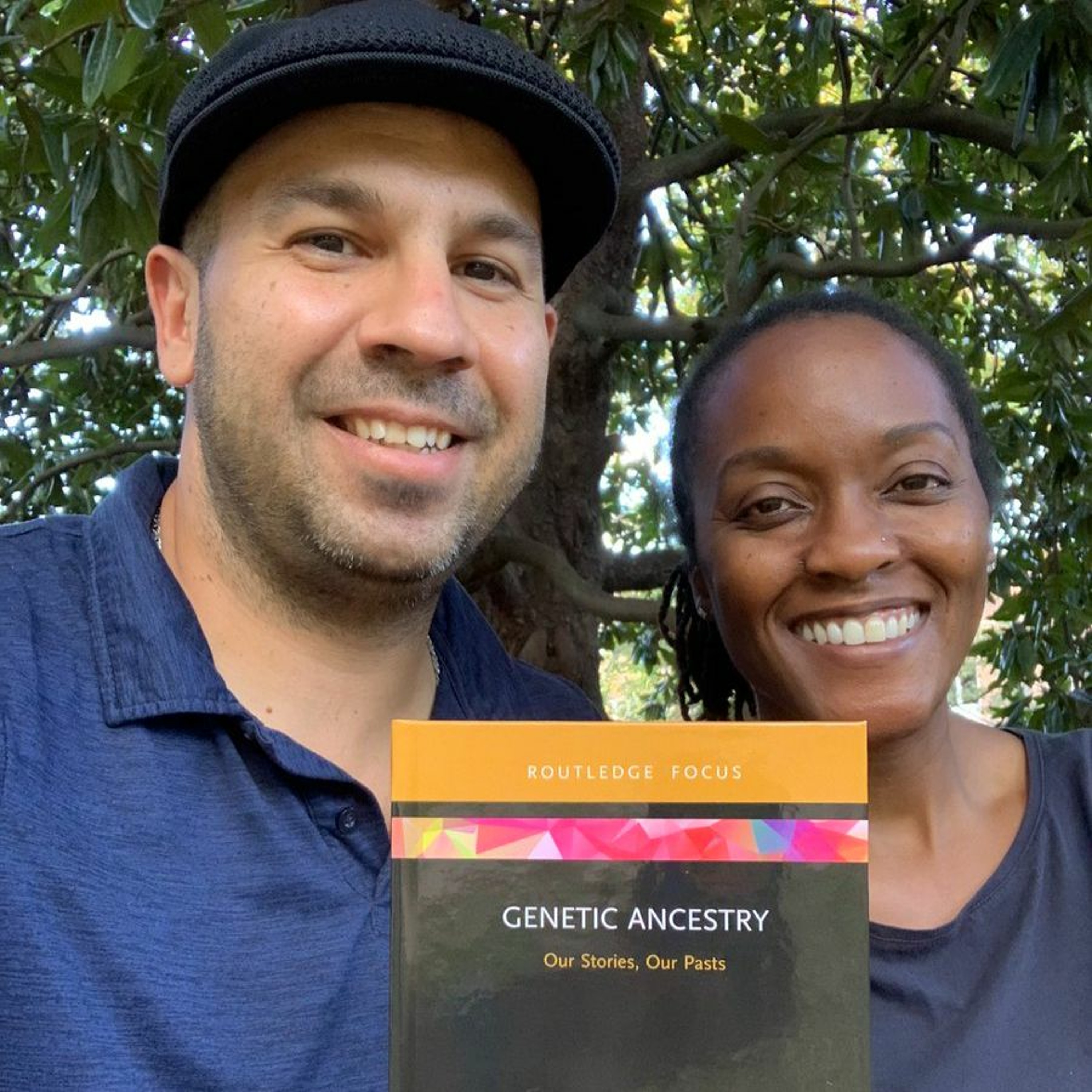
Sausage of ScienceSoS 104-Doing the Biocultural Work with Dr. Jada Benn Torres and Dr. Gabriel A Torres ColónJada Benn Torres is Associate Professor of Anthropology and the Director for the Laboratory of Genetic Anthropology and Biocultural Studies at Vanderbilt University. She specializes in genetic ancestry, health disparities, and the Caribbean. You can find out more about her and her lab on her website: https://as.vanderbilt.edu/anthropology/bio/jada-benntorres
Gabriel A Torres Colón is a cultural anthropologist who specializes in race, politics, intellectual history, and sports. You can find out more about him on his website: https://as.vanderbilt.edu/anthropology/bio/gabrieltorres-colon. On this weeks episode, Chris and Cara talk to Dr. Jada Benn T...
2020-12-0849 min
Green Dreamer: Seeding change towards collective healing, sustainability, regeneration280) Luisa Maffi [PART 2]: Uniting in support of a global biocultural extinction rebellion*We need your support to continue the show! If you've listened to more than a few episodes and have learned from our work, please join our Patreon today: www.greendreamer.com/support Dr. Luisa Maffi is a pioneer of the concept of biocultural diversity—which is the intertwined diversity of life in nature and culture. In 1996, she co-founded Terralingua, which is an international nonprofit devoted to sustaining biocultural diversity. And she currently heads the organization and edits its flagship publication, Langscape Magazine. In this podcast episode, Dr. Maffi sheds light on what it mea...
2020-11-1230 min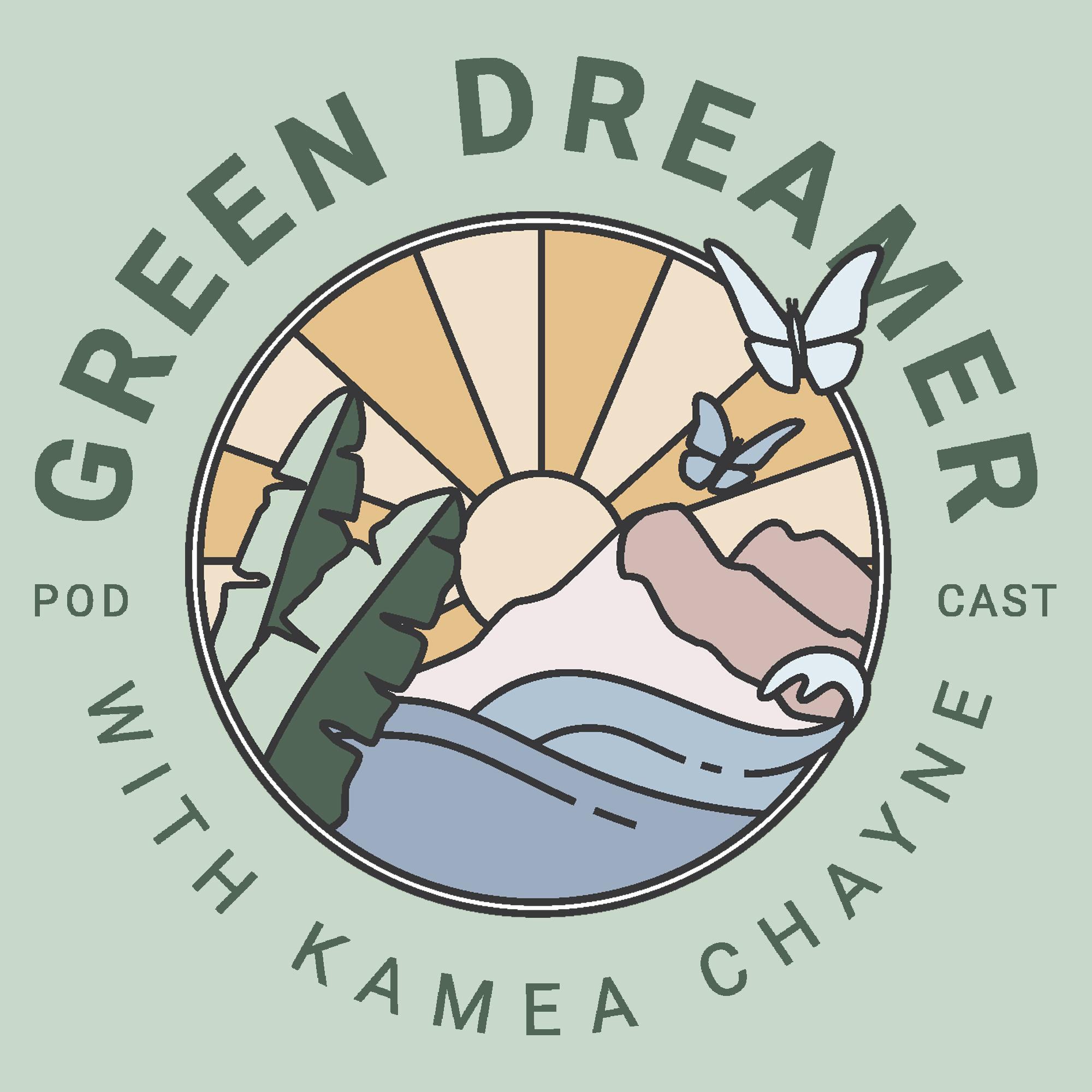
Green Dreamer: Seeding change towards collective healing, sustainability, regeneration280) Luisa Maffi [PART 2]: Uniting in support of a global biocultural extinction rebellion*We need your support to continue the show! If you've listened to more than a few episodes and have learned from our work, please join our Patreon today: www.greendreamer.com/support Dr. Luisa Maffi is a pioneer of the concept of biocultural diversity—which is the intertwined diversity of life in nature and culture. In 1996, she co-founded Terralingua, which is an international nonprofit devoted to sustaining biocultural diversity. And she currently heads the organization and edits its flagship publication, Langscape Magazine. In this podcast episode, Dr. Maffi sheds light on what it mea...
2020-11-1230 min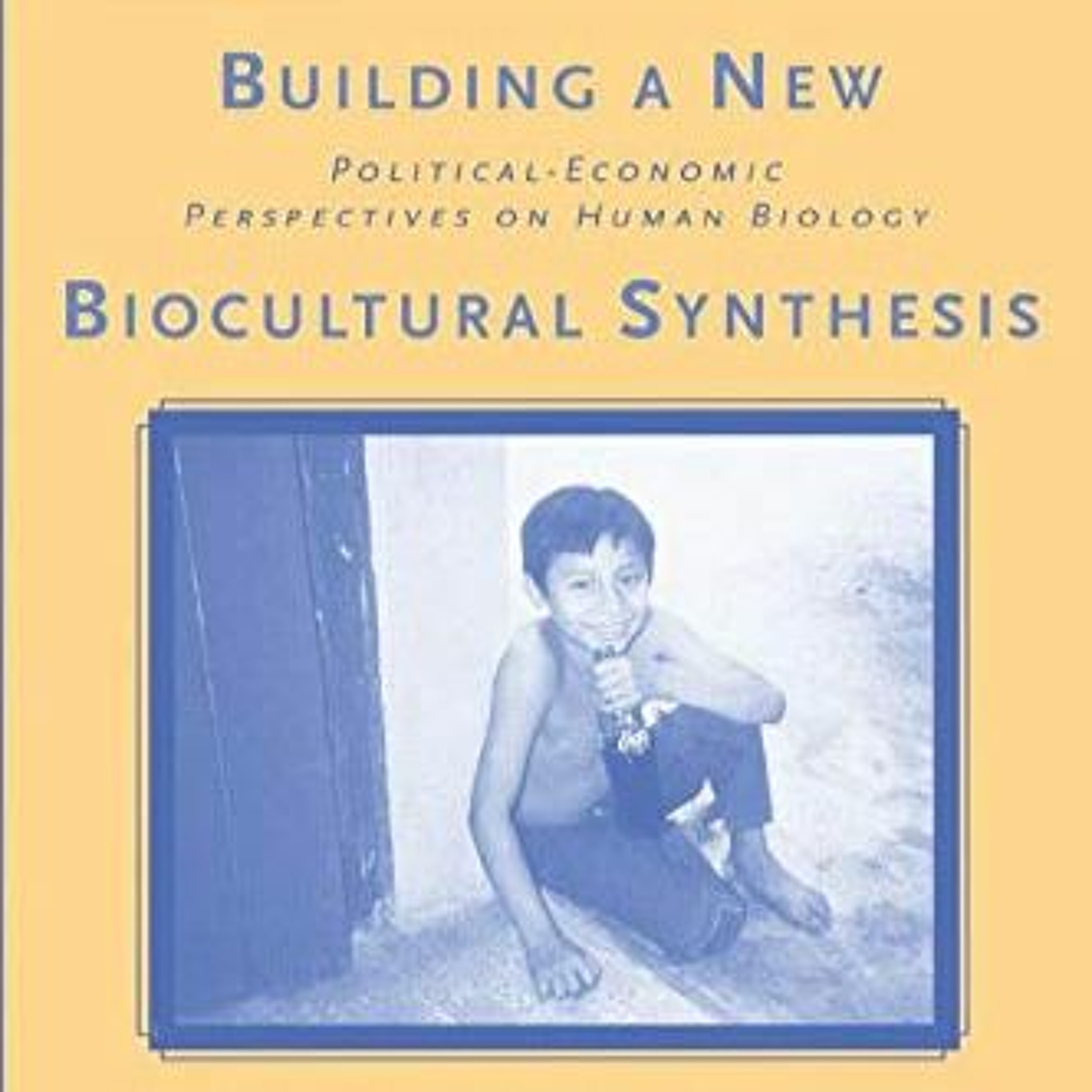
Sausage of ScienceSoS 91 – How the Outside gets Inside with Drs. Tom Leatherman and Alan GoodmanIn this episode Chris and Cara talk with Dr. Tom Leatherman (Professor of Anthropology at UMass Amherst) and Dr. Alan Goodman (Professor of Anthropology at Hampshire College). Drs. Leatherman and Goodman discuss their revolutionary work advocating for biocultural collaborations within anthropology, focusing especially on concepts of embodiment, political economy, and structural racism. The conversation explores advances in biocultural work, from the publication of their groundbreaking book “Building a New Biocultural Synthesis” to the state of the field today.
Email Dr. Leatherman at: tleatherman@anthro.umass.edu
Email Dr. Goodman at: agoodman@hampshire.edu
Check out the AJHB article “Building on the bi...
2020-09-0551 min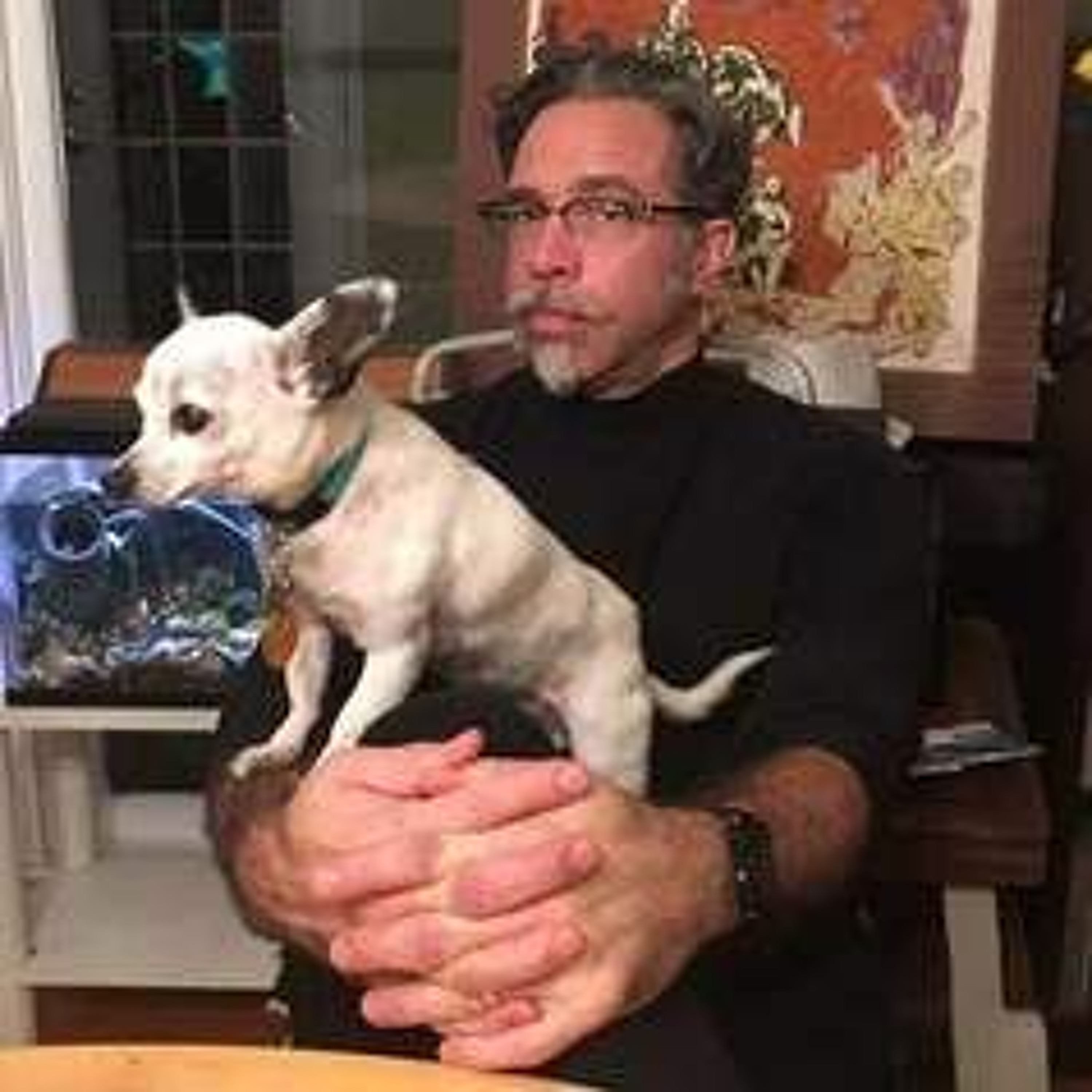
Sausage of ScienceSoS 90 – Biocultural Perspectives on Tattooing with Dr. Christopher LynnSoS 90 – Biocultural Perspectives on Tattooing with Dr. Christopher Lynn
We’re back from break! To kick off this new season, we have an interview with our very own Dr. Christopher Lynn. Chris is a biocultural medical anthropologist and Associate Professor of Anthropology at the University of Alabama. In this episode Chris talks about his ongoing work examining associations between immune function and tattooing, focusing on a recent article featured in the AJHB Special Issue: Continuity and Change in Biocultural Anthropology. This study tested whether tattooing may act as a costly signal of immunological quality among participants in American Samoa.
Learn more...
2020-08-3147 min
Polifonía UrbanaManizales BioculturalEn esta nueva entrega de Polifonía Urbana, estuvimos conversando con Alex Rodriguez, uno de los gestores del Manizales Biocultural, una celebración de ciudad en la que el arte urbano se toma las calles, de la mano de los mejores muralistas, grafiteros y demás artistas gráficos locales.
Capitulo en coproducción con la Revista Alternativa
2020-07-3047 min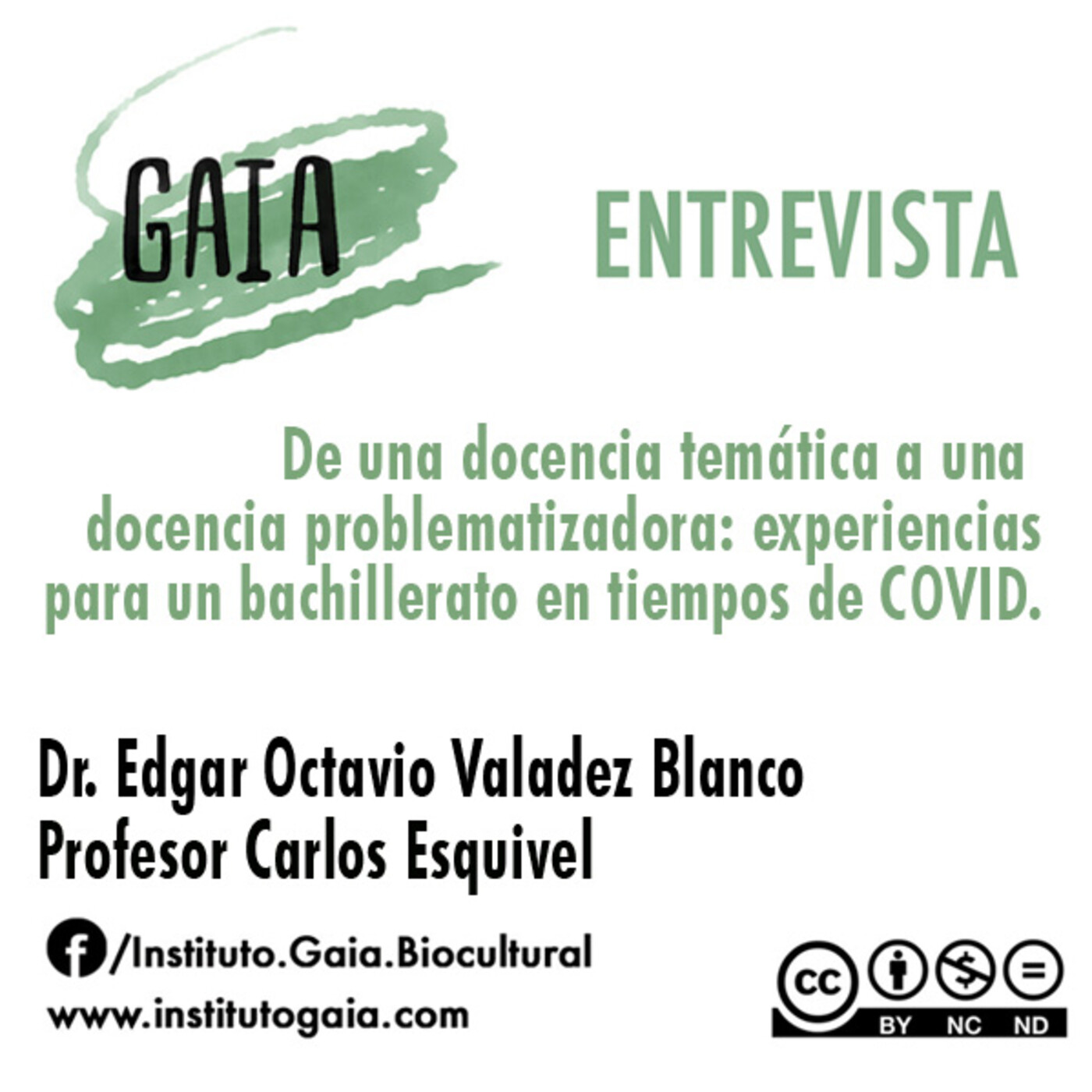
Instituto Gaia BioculturalDe una docencia temática a una problematizadora: experiencias para bachillerato en tiempos de COVID.Entrevista con el profesor Carlos Esquivel que nos habla de una docencia temática a una docencia problematizadora: experiencias para un bachillerato en tiempos de COVID.
2020-06-181h 24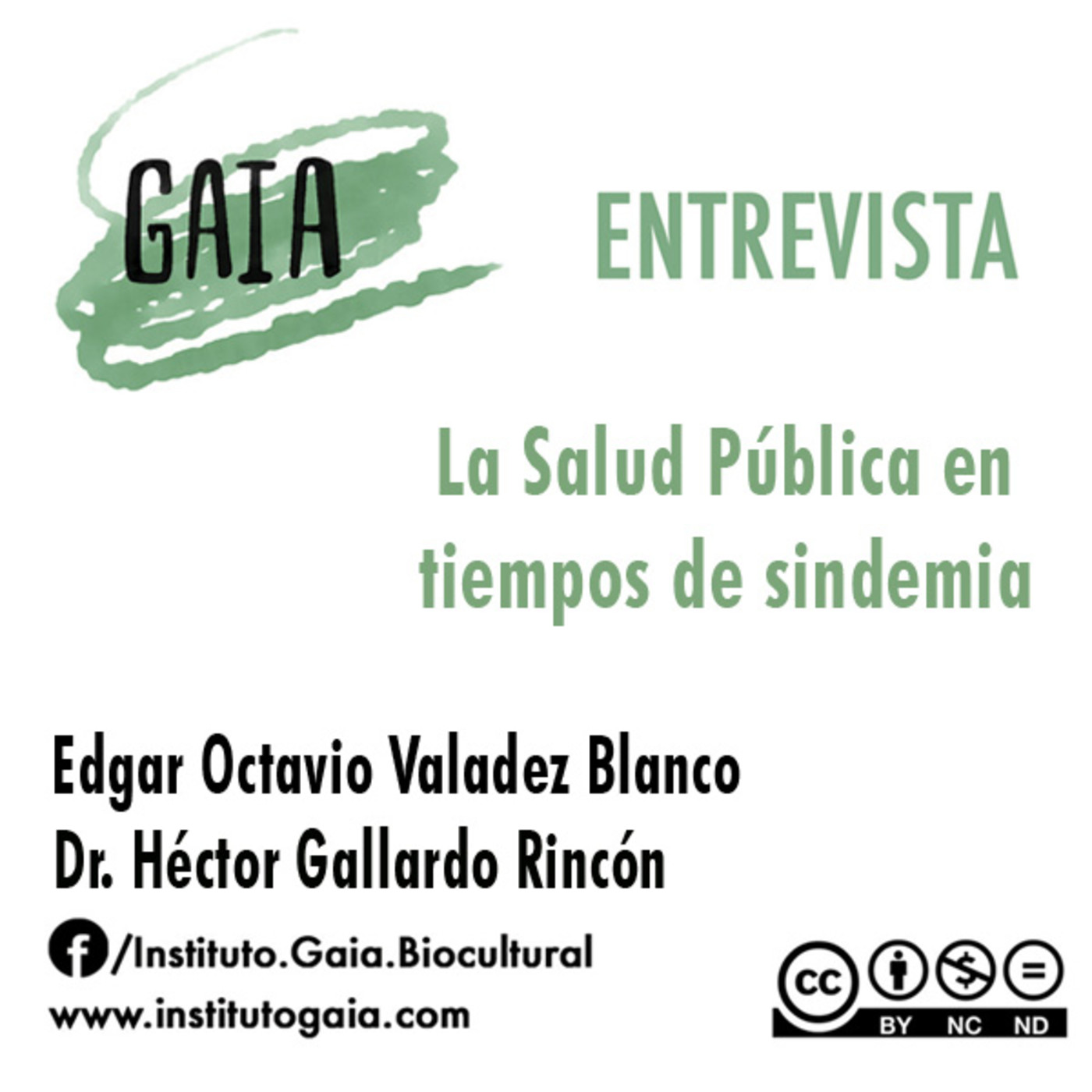
Instituto Gaia BioculturalLa Salud Pública en tiempos de sindemia.Dr. Héctor Gallardo Rincón en entrevista nos habla sobre la Salud Pública en tiempos de sindemia.
La pandemia del COVID-19 no es la primera ni la última pandemia que ha enfrentado la humanidad. No es siquiera la única pandemia que habitamos ahora. Es en ese contexto que deviene indispensable abordar la emergencia sanitaria desde una mirada histórica crítica y desde la óptica de la sindemia. Sindemia es hablar de epidemias que coexisten de forma sinérgica, que interactúan y que exacerban la carga de la enfermedad empeorando las esperanzas de sobrevida. Pensar desde la categoría...
2020-05-311h 20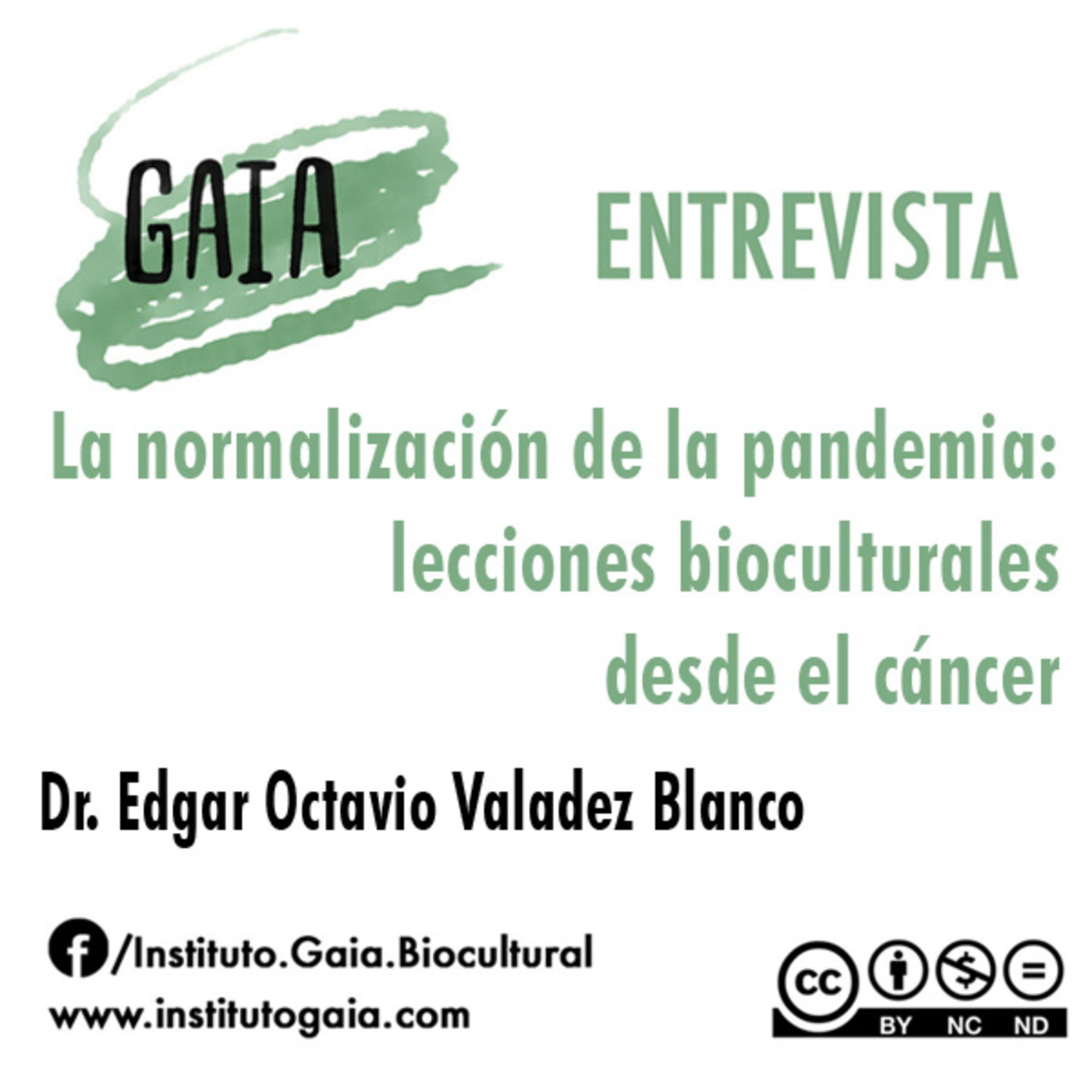
Instituto Gaia BioculturalLa normalización de la pandemia: lecciones bioculturales desde el cáncerEntrevista con el Dr. Octavio Valadez Blanco - La normalización de la pandemia: lecciones bioculturales desde el cáncer.
2020-05-311h 30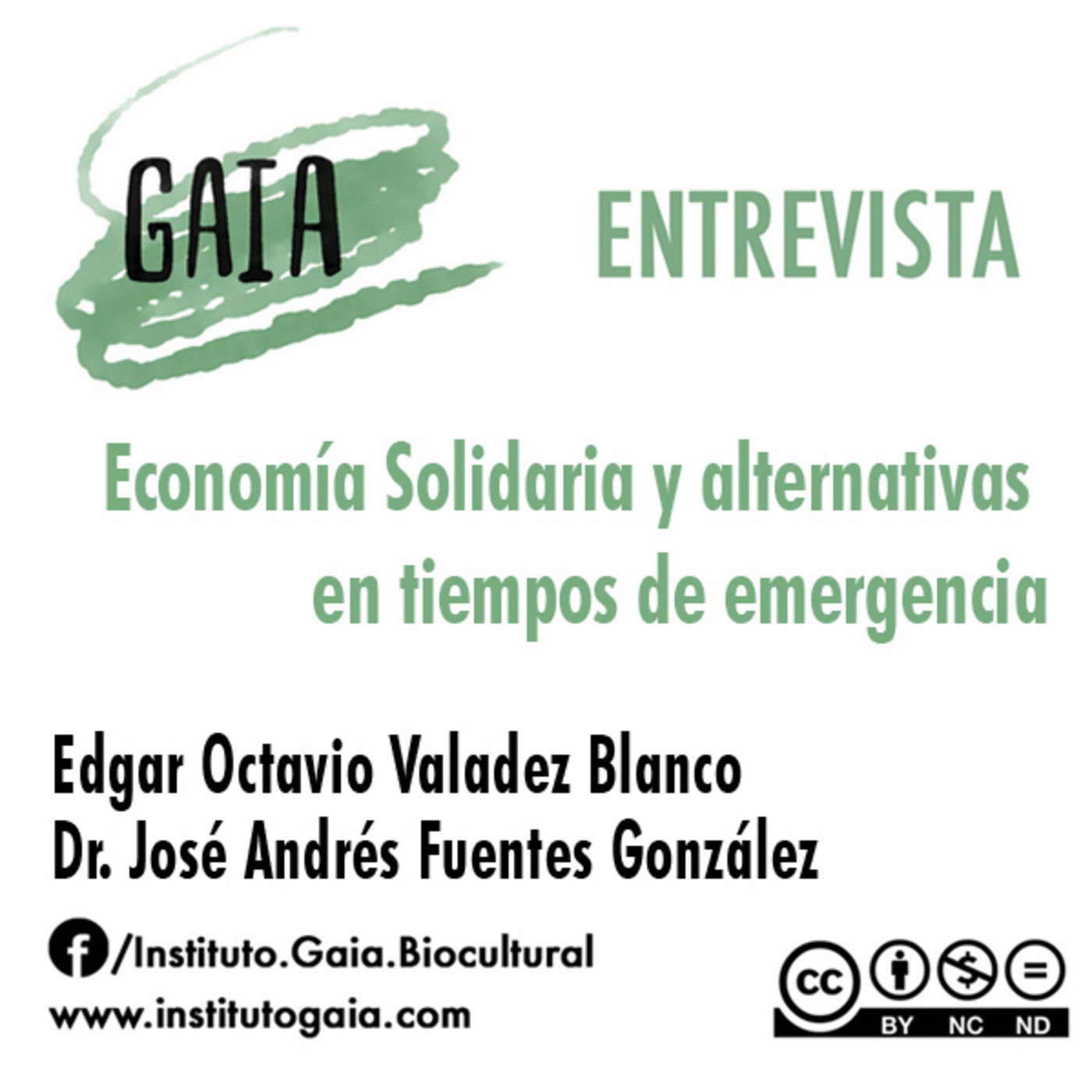
Instituto Gaia BioculturalEconomía Solidaria y alternativas en tiempos de emergencia.En entrevista con el Dr. José Andrés Fuentes González nos habla sobre Economía Solidaria y alternativas en tiempos de emergencia.
2020-05-131h 29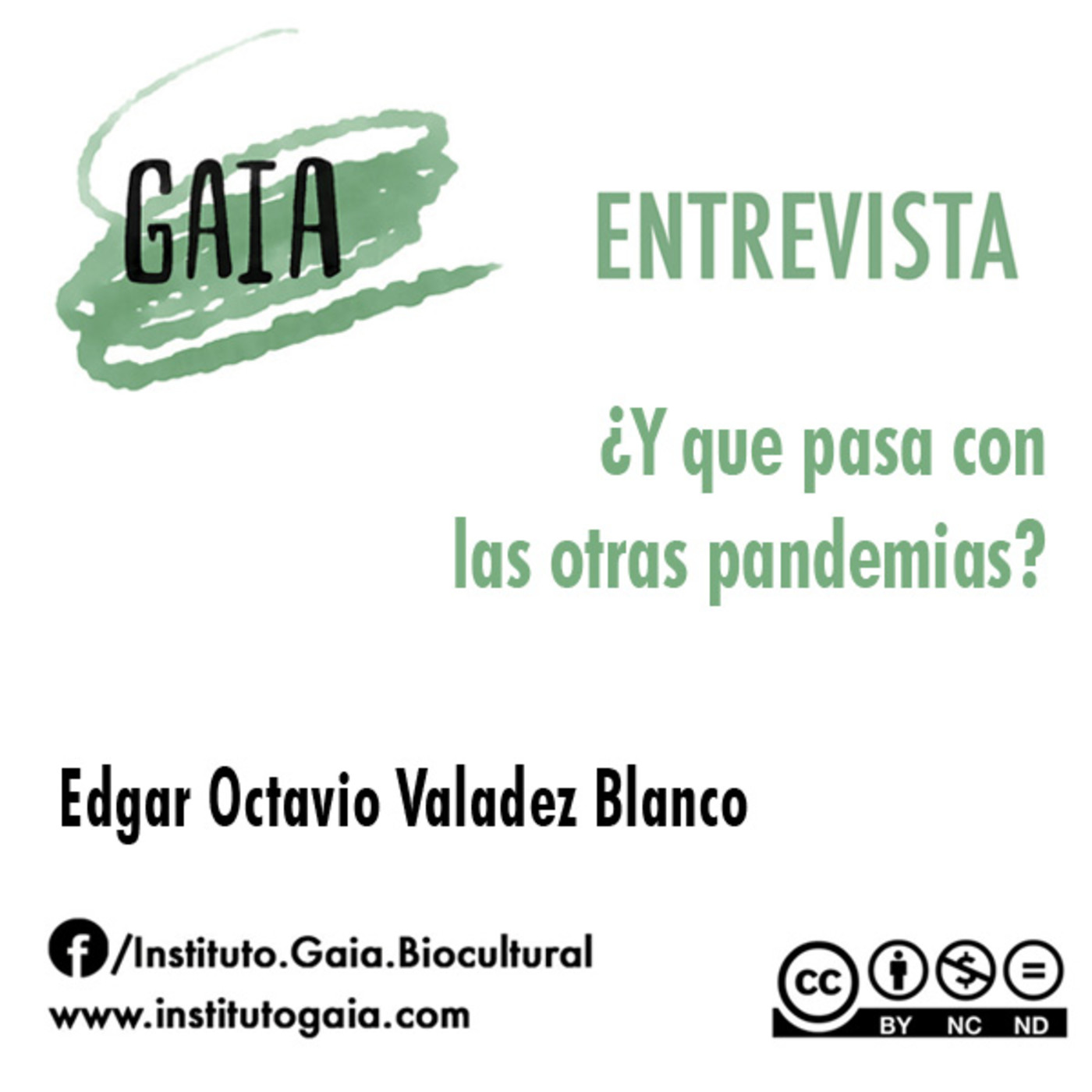
Instituto Gaia Biocultural¿Y que pasa con las otras pandemias?En la entrevista de hoy platicaremos sobre: ¿Y que pasa con las otras pandemias?
2020-04-291h 44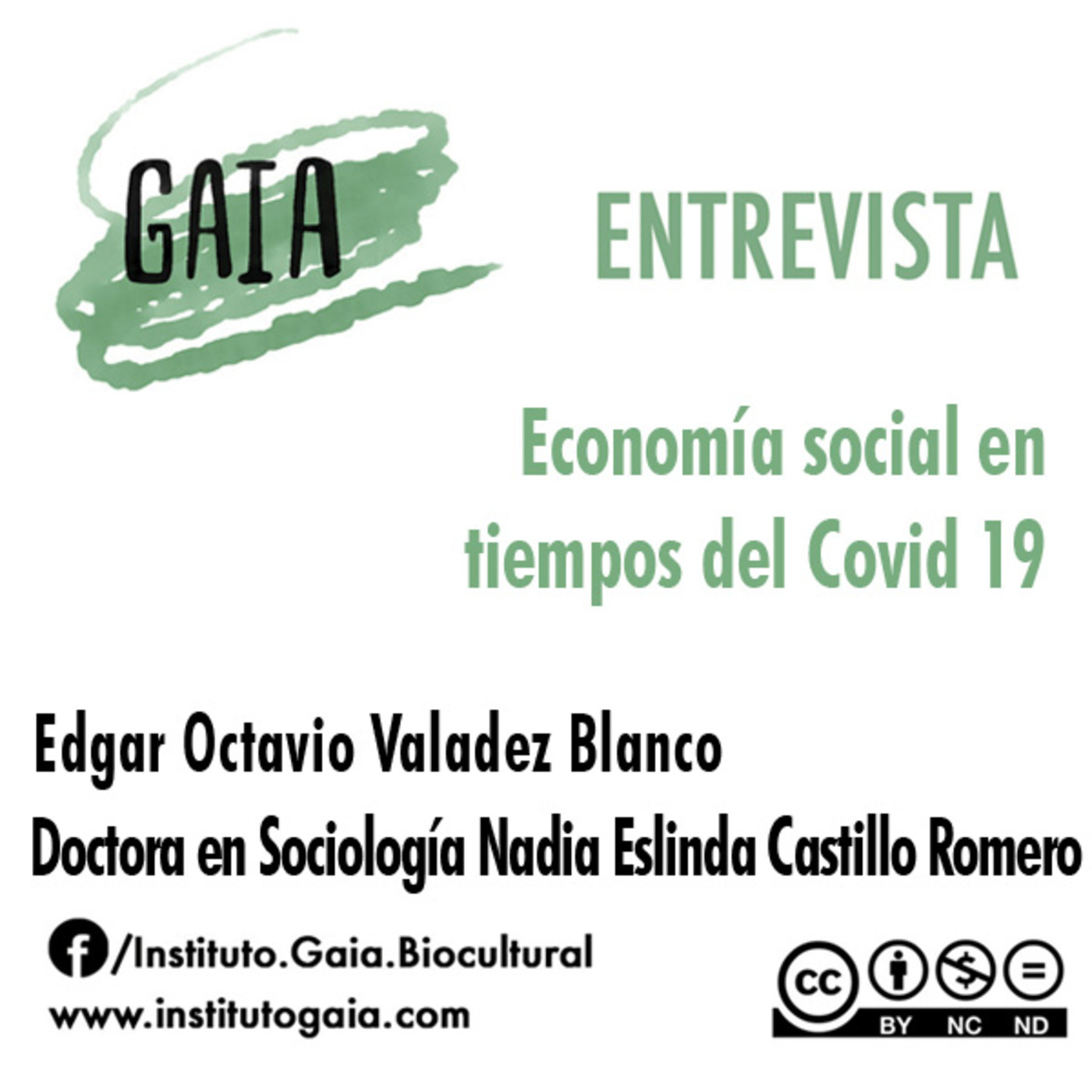
Instituto Gaia BioculturalEconomía social en tiempos del Covid 19GAIA entrevista a la Doctora en Sociología Nadia Eslinda Castillo Romero quien nos hablará de La Economía social en tiempos del Covid 19
2020-04-231h 09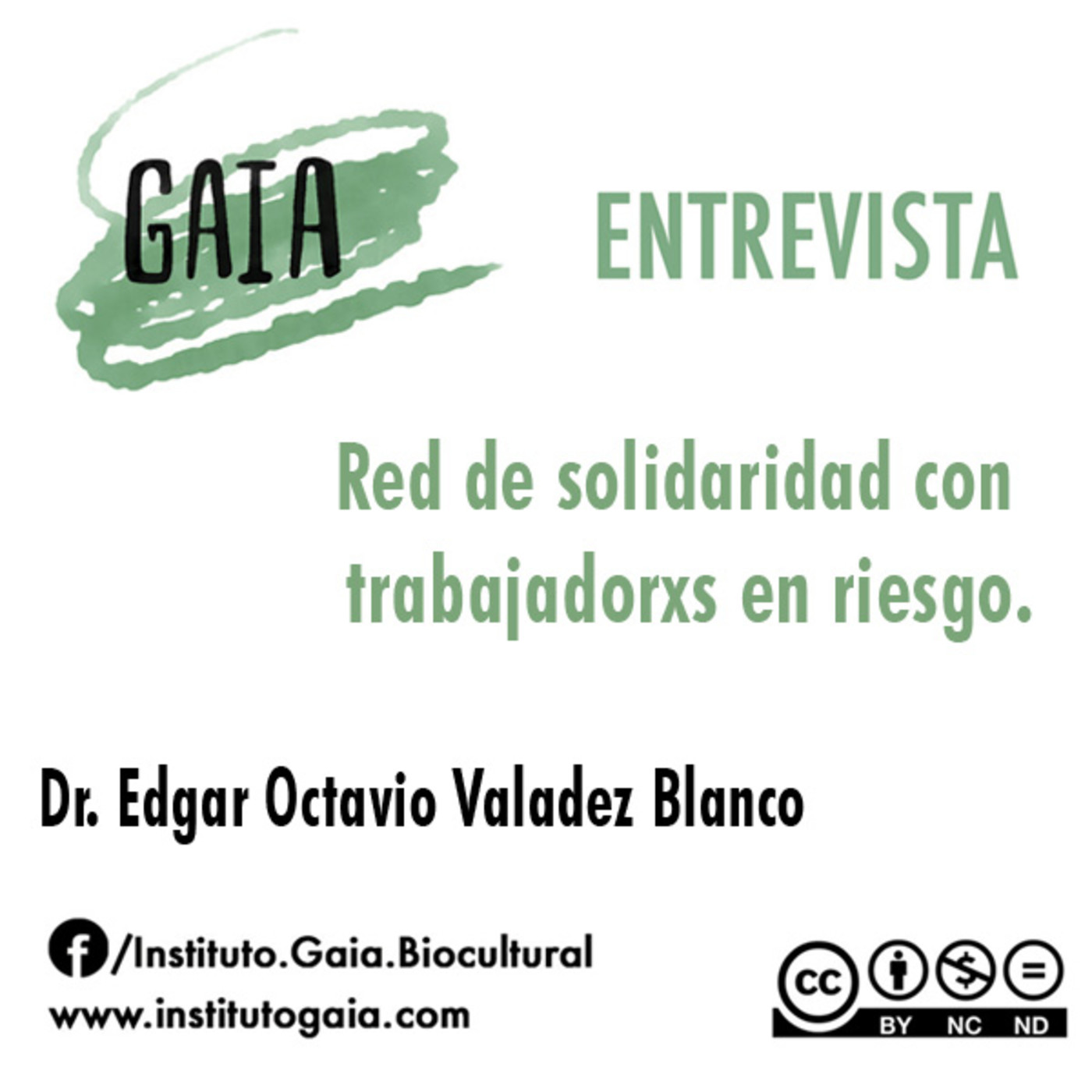
Instituto Gaia BioculturalRed de solidaridad con trabajadorxs en riesgo.Instituto GAIA realiza una entrevista con la Red de solidaridad con trabajadorxs en riesgo.
2020-04-231h 16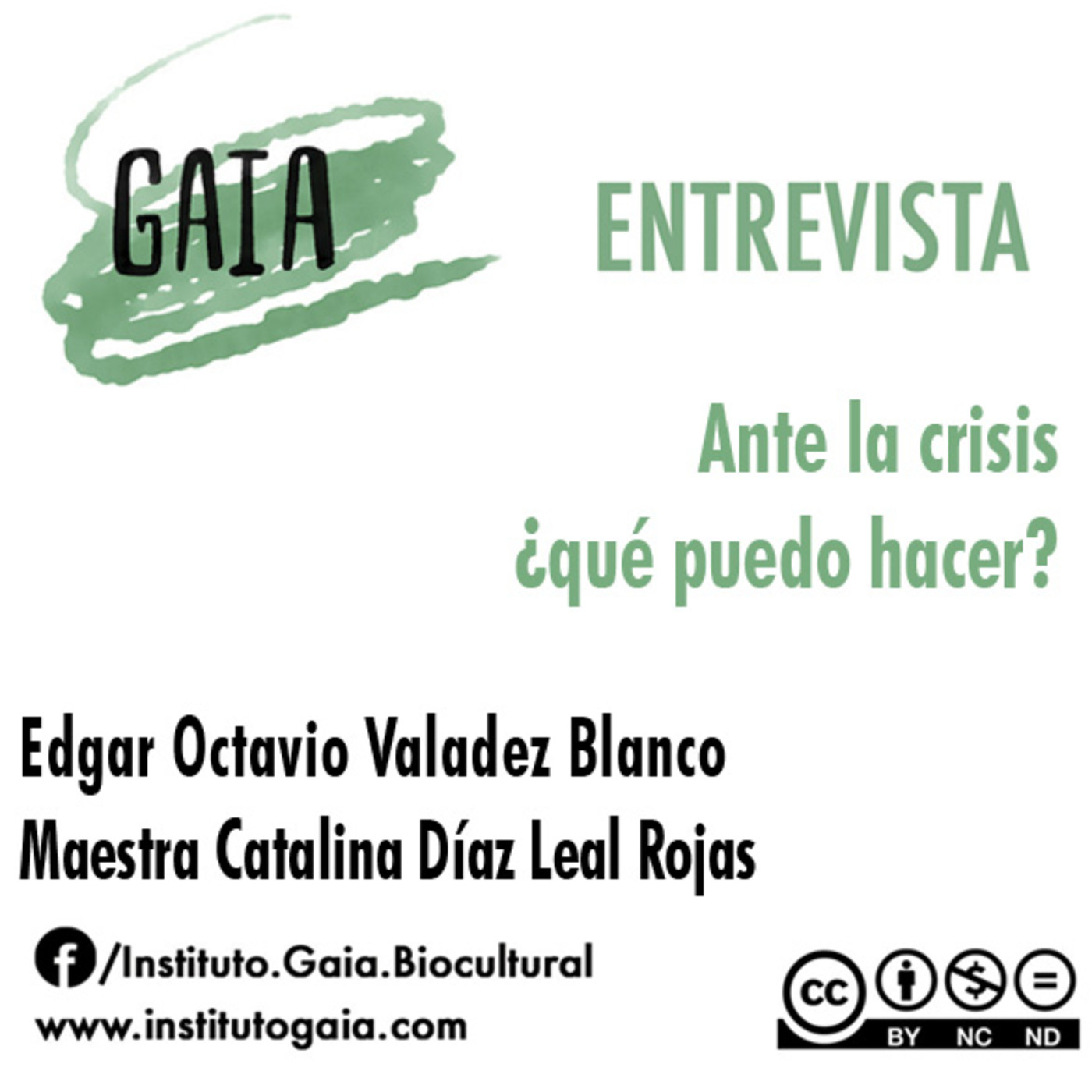
Instituto Gaia BioculturalHerramientas emocionales y autoconocimiento como oportunidad de creación y co-creación en tiempos de crisis sanitariaEn entrevista a la Mtra. Catalina Díaz Leal Rojas (Maestra en Terapia Gestáltica) nos habla sobre herramientas emocionales y autoconocimiento como oportunidad de creación y co-creación para este tiempo de crisis sanitaria.
2020-04-161h 01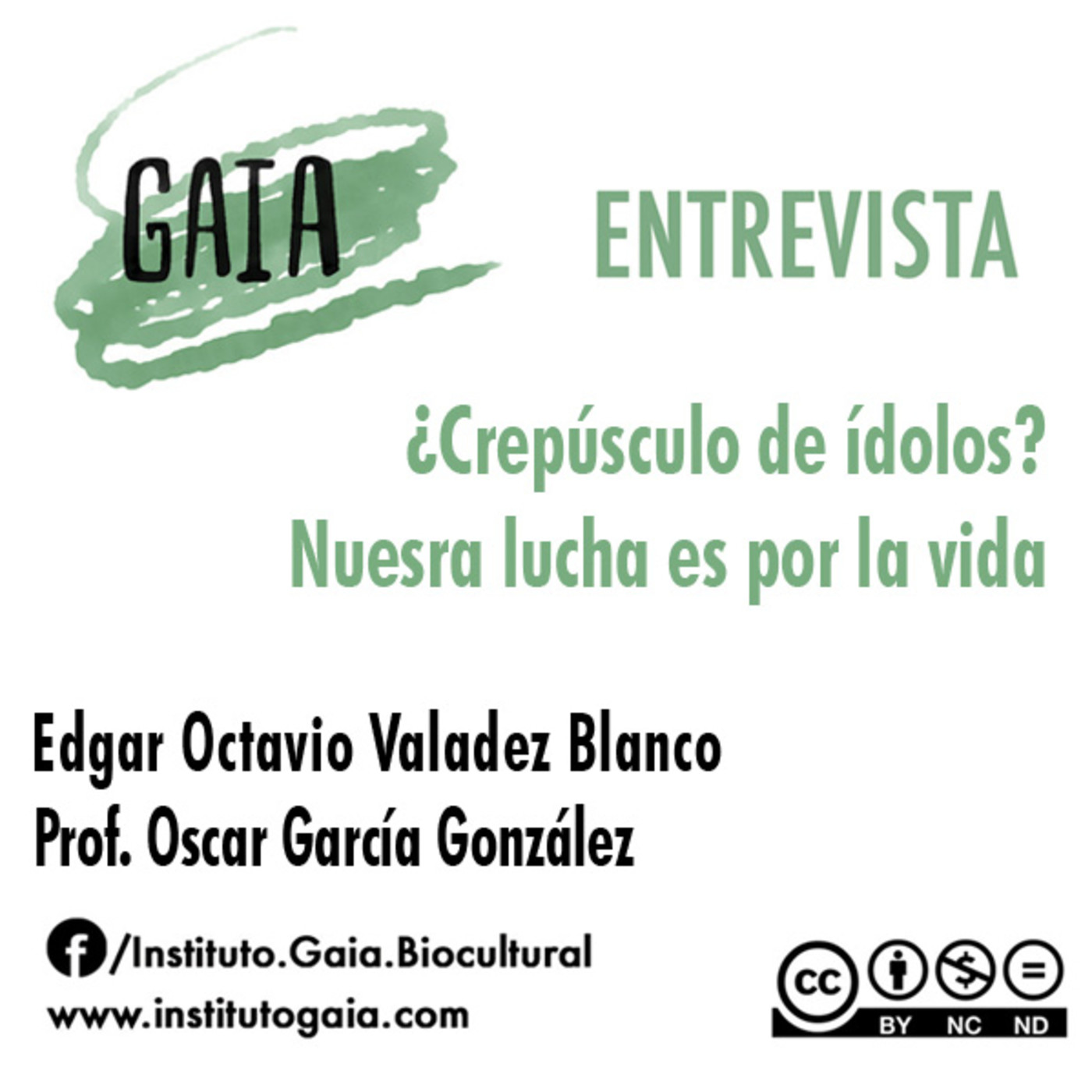
Instituto Gaia Biocultural¿Crepúsculo de ídolos? Nuestra lucha es por la vidaEntrevista con el Maestro Óscar García González, antropólogo y psicólogo social, quien nos habla sobre: ¿CREPÚSCULO DE ÍDOLOS? NUESTRA LUCHA ES POR LA VIDA
2020-04-161h 02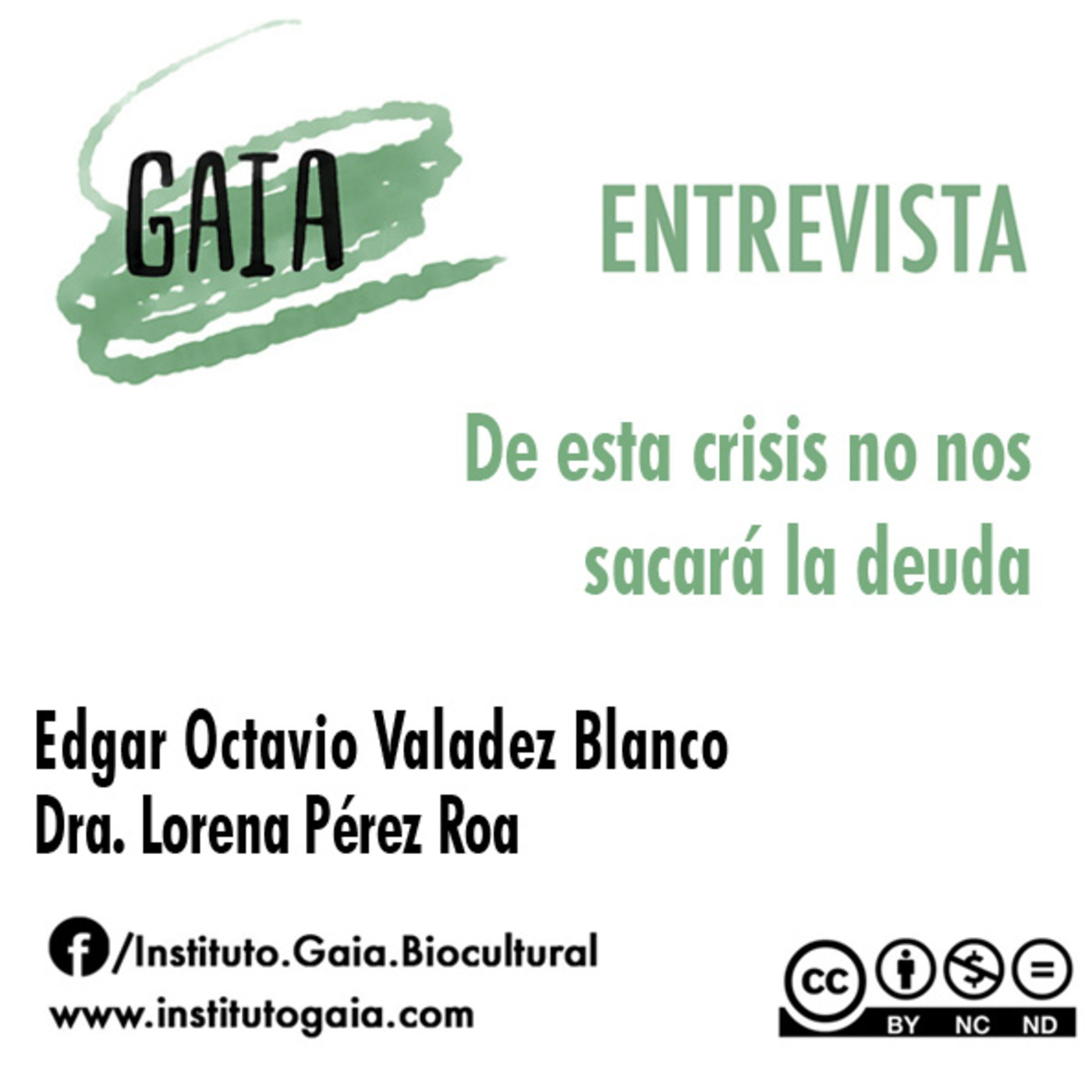
Instituto Gaia BioculturalDe esta crisis no nos sacará la deudaInstituto GAIA Biocultural entrevistó a la Dra. Lorena Pérez Roa.
De esta crisis no nos sacará la deuda
2020-04-161h 06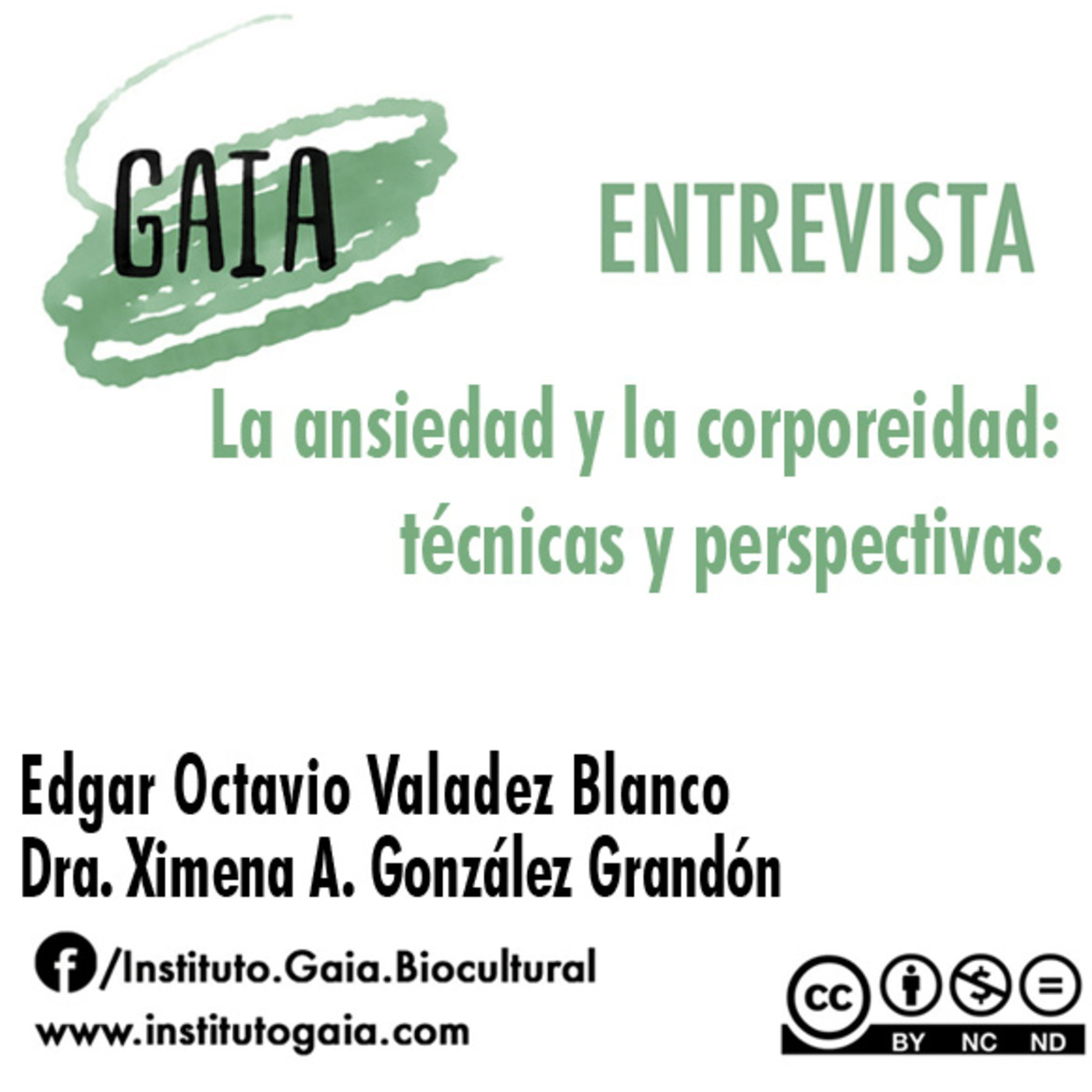
Instituto Gaia BioculturalLa ansiedad y la corporeidad: técnicas y perspectivas.En entrevista a la Dra. Ximena A. González Grandón nos habla sobre: La ansiedad y la corporeidad: técnicas y perspectivas.
2020-04-151h 06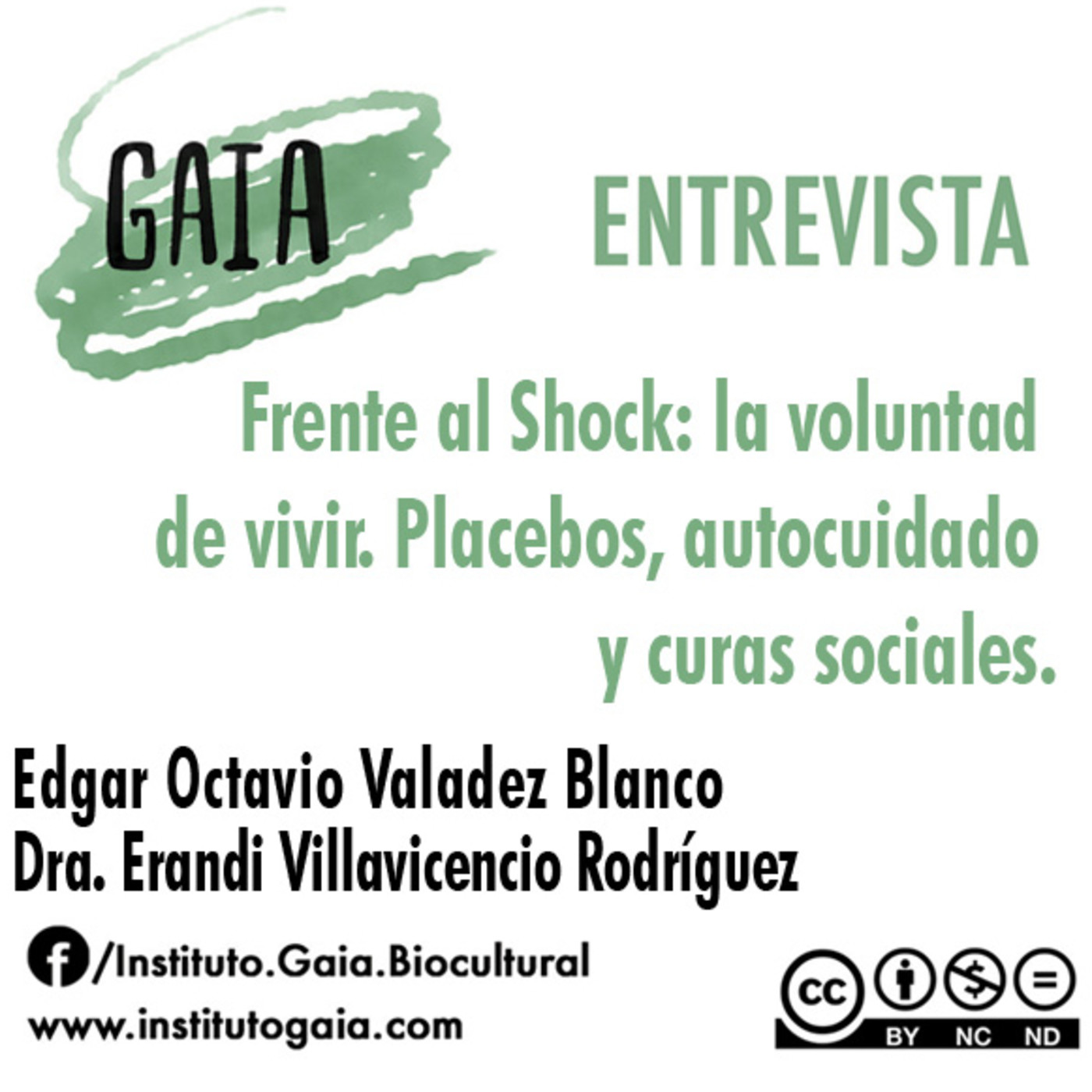
Instituto Gaia BioculturalFrente al Shock: la voluntad de vivir. Placebos, autocuidado y curas sociales.Entrevista a la Dra. Erandi Villavicencio Rodríguez quien nos habla de: Frente al Shock: la voluntad de vivir. Placebos, autocuidado y curas sociales.
2020-04-151h 15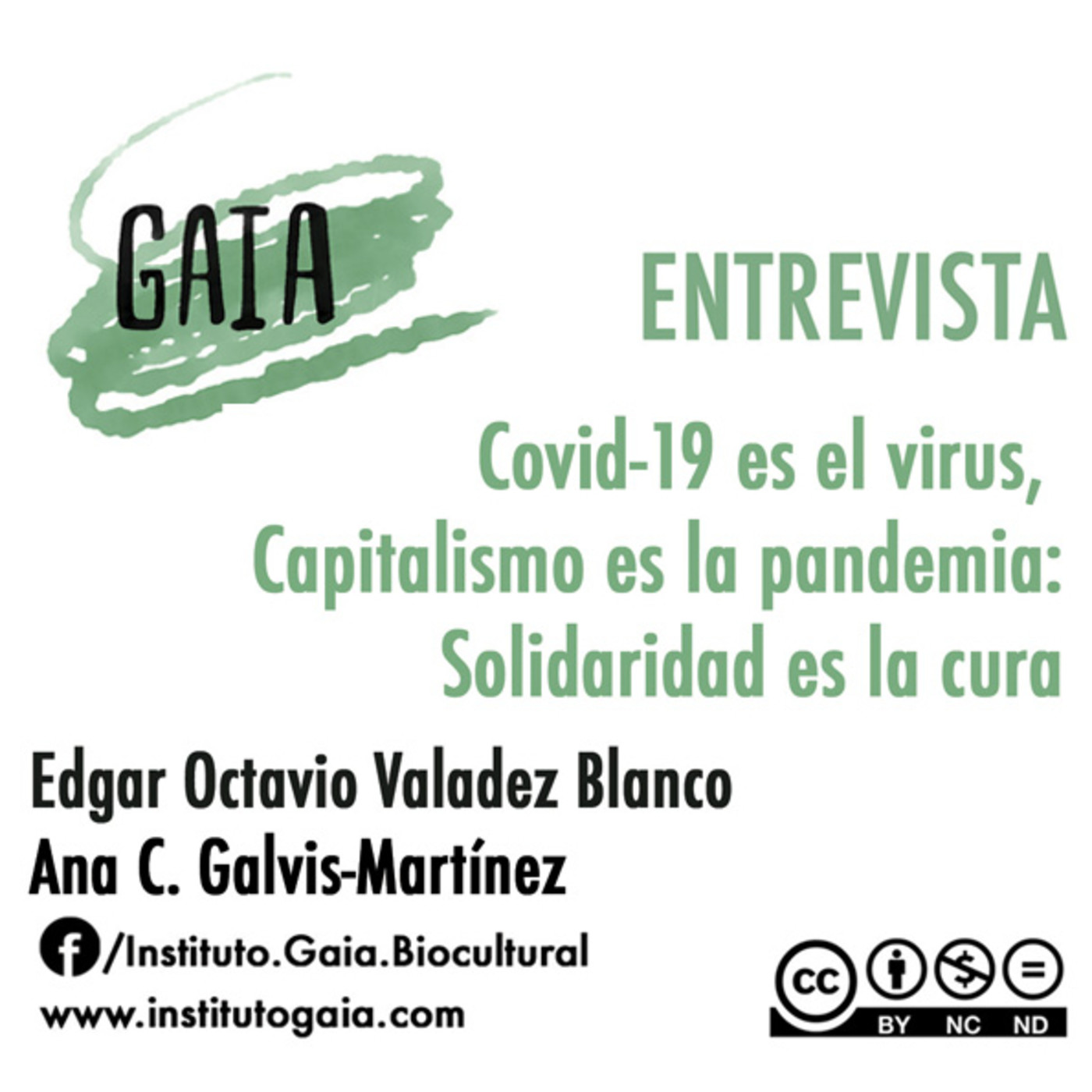
Instituto Gaia BioculturalCovid-19 es el virus, Capitalismo es la pandemia, Solidaridad es la cura.Entrevista a Ana C. Galvis-Martínez quien nos hablar sobre: Covid-19 es el virus, Capitalismo es la pandemia, Solidaridad es la cura.
2020-04-141h 18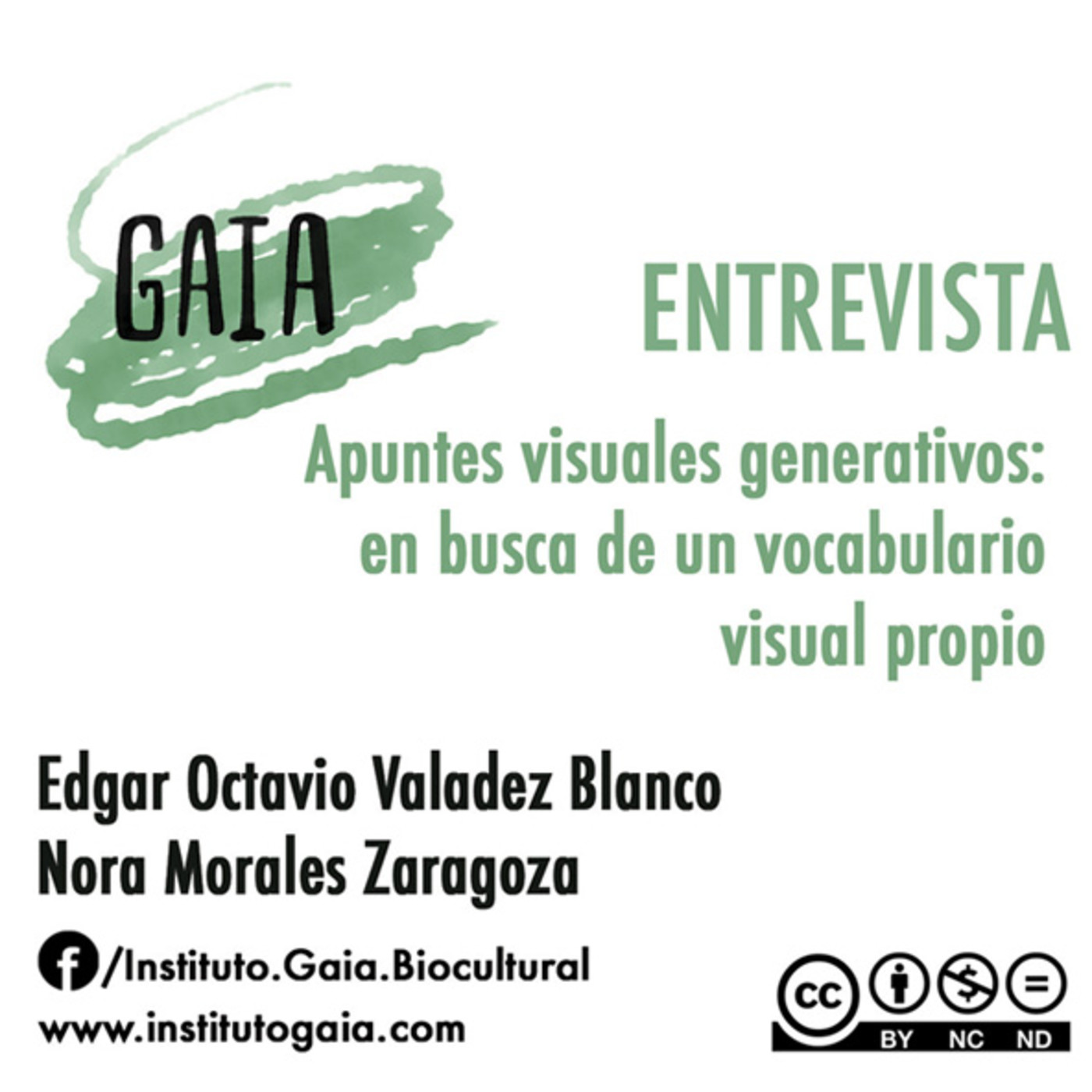
Instituto Gaia BioculturalApuntes visuales generativos: en busca de un vocabulario visual propio.Entrevista a Nora Morales Zaragoza quien nos habla sobre Apuntes visuales generativos: en busca de un vocabulario visual propio.
2020-04-141h 07
TURISMO SOSTENIBLETurismo Biocultural en México con Rutopía – Turismo Sostenible 38Durante fitur 2020 nos encontramos con Emilio Iturriga y Diego Espinoza, dos de los creadores de Rutopía una plataforma mexicana que funciona bajo el lema “DESCUBRE MÉXICO A TRAVÉS DE VIAJES BIO-CULTURALES”. Desde la comodidad de tu casa te invitamos a aprender sobre este gran proyecto que ha ganado varios premios internacionales y que está […]
The post Turismo Biocultural en México con Rutopía – Turismo Sostenible 38 appeared first on Radio Viajera.
2020-03-1924 min
Frecuencia AmbientalEpisodio 14. Paisaje Biocultural de la Sierra Occidente y Festival de la RaicillaEntrevista con Óscar Landeros, productor de Raicilla en Mascota, Jalisco y con Santiago Machado, Director del Paisaje Biocultural Sierra Occidente de Jalisco
Fecha de transmisión: 7 de diciembre de 2019
Frecuencia Ambiental es un programa radiofónico que tiene el objetivo de comunicar temas ambientales con un enfoque educativo en formato de entrevista. Todas las piezas de audio que se incluyen cuentan con sus créditos correspondientes, mencionados al término de cada pieza musical, a través de este programa radiofónico no se obtiene compensación monetaria y es de origen público, es decir, no...
2019-12-0854 min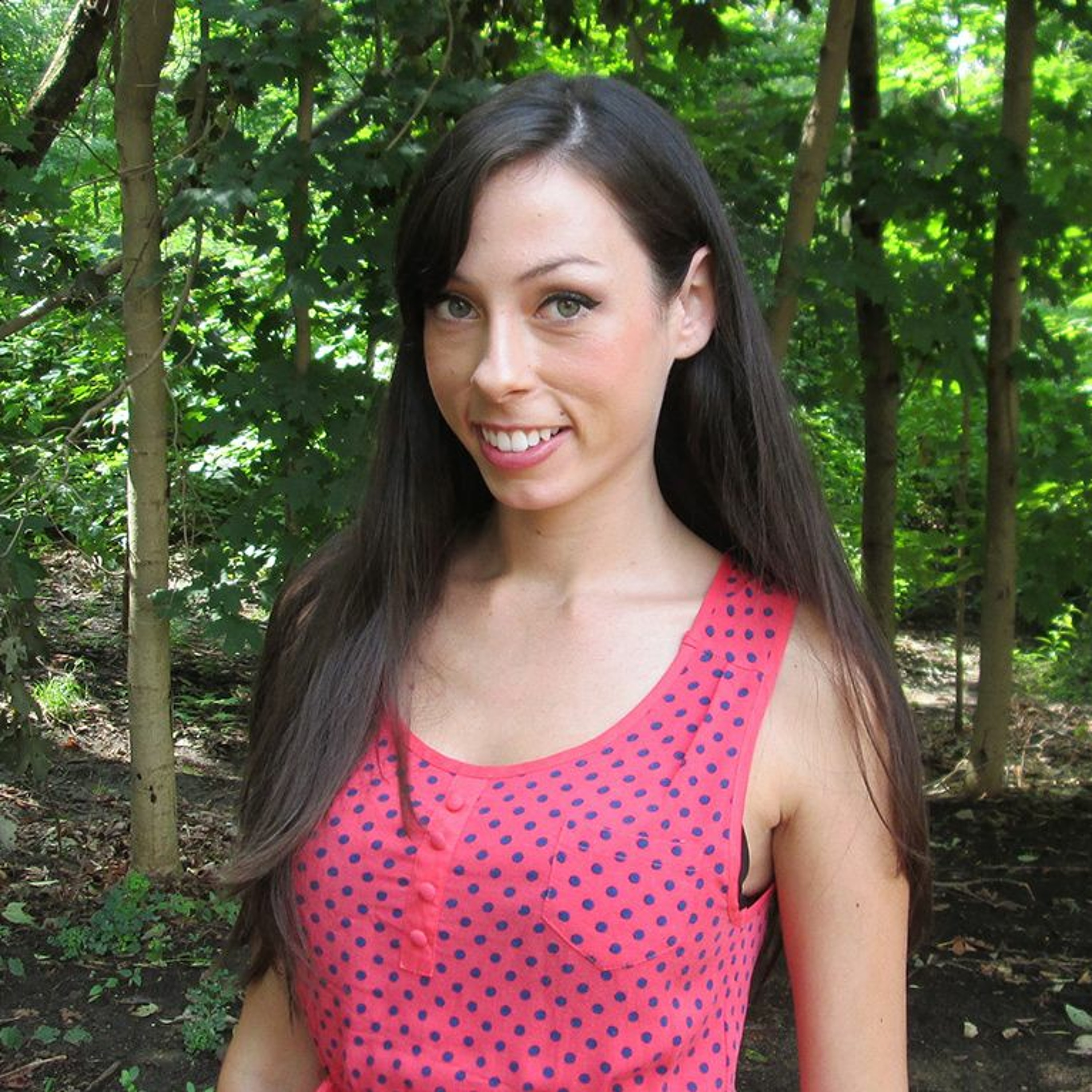
Sausage of ScienceSoS 53- What do anthropologists mean by "biocultural"? with Jennifer CullinThis week on the Sausage of Science, Chris and Cara chat with Jennifer Cullin, a doctoral student in the department of anthropology at Indiana University Bloomington. At IU Bloomington, Jennifer's research focuses on fat bias and the relationship between statistical norms and cultural norms. During her first year as a graduate student, she co-authored, "What Do Anthropologists Mean When They Use the Term Biocultural?"Her dissertation research documents the obesity prevalence and externalizing and internalizing fat bias among two populations in Indiana. In this episode, she chats with Chris and Cara about biocultural anthropology and the preliminary findings of her...
2019-11-1133 min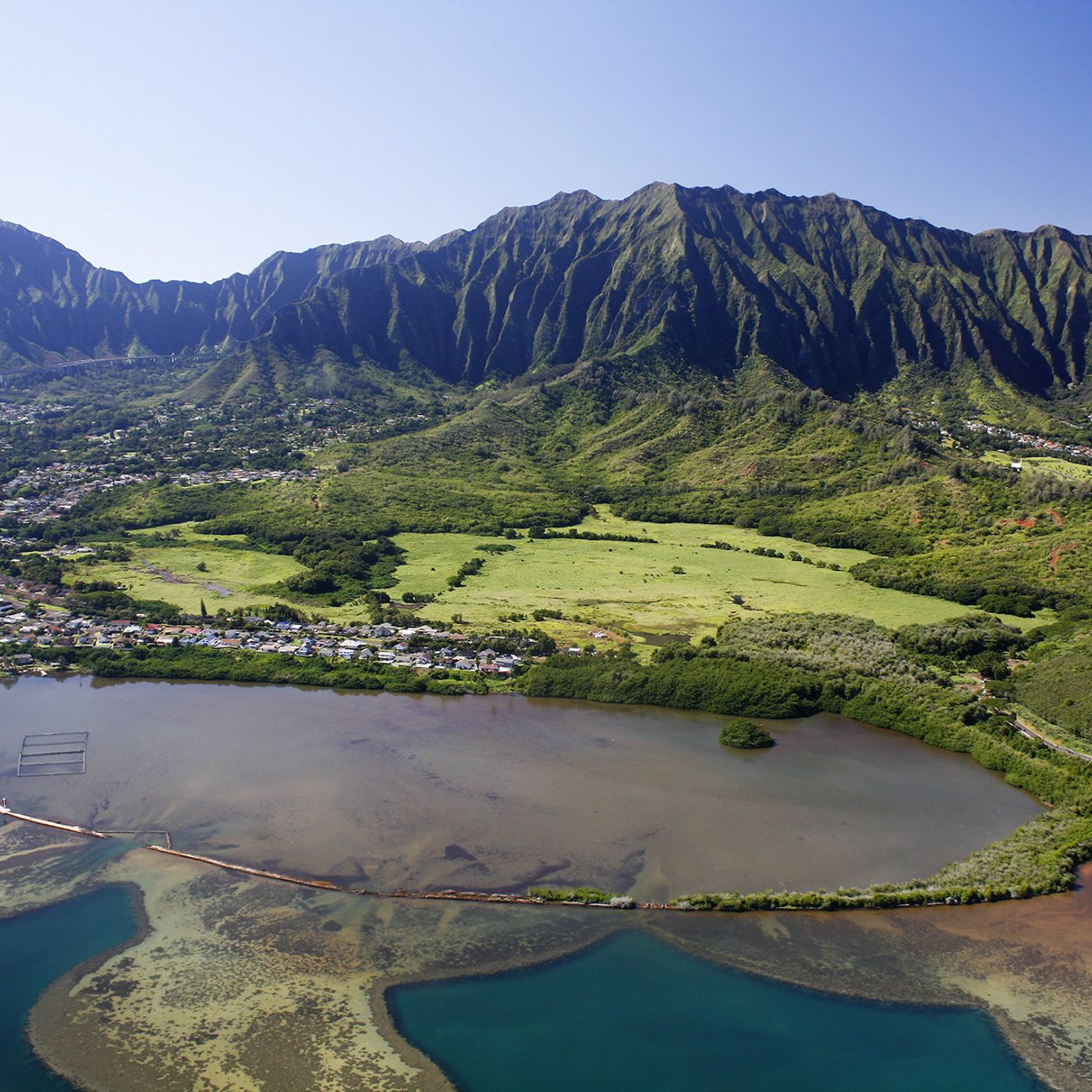
Bishop Museum PodcastsHawaiian Science: Biocultural Restoration of an Ahupua‘aHawaiian Science: Biocultural Restoration of an Ahupua‘awith Dr. Kawika Winter, reserve manager at the He‘eia National Estuarine Research ReserveRecorded Thursday, March 21, 2019 in the Hawaiian Hall AtriumExplore large-scale biocultural restoration and traditional resource management in the largest sheltered body of water in the Hawaiian Islands. The reserve protects unique ecosystems including the He‘eia Stream, coral reefs, sand flats, an ancient Hawaiian fishpond, as well as traditional agricultural and heritage lands. It is home to the endangered Hawaiian stilt, moorhen, coot, duck and hoary bat. Winter speaks about the effect of a typica...
2019-06-2356 min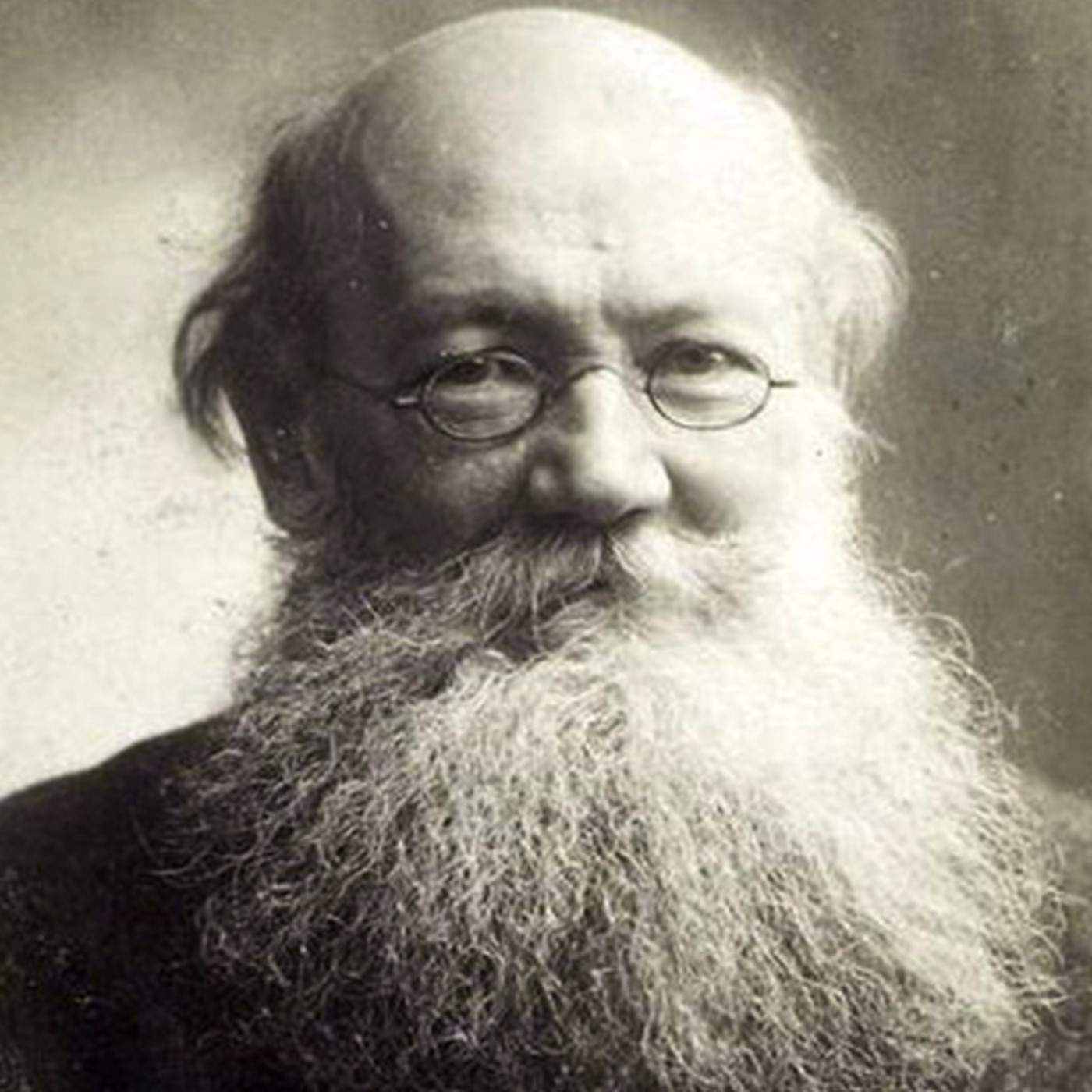
Piotr Kropotkin y el debate sobre la naturalezaBarry Bogin: La evolución del ciclo vital: cooperación y aprendizaje en el sistema de Reproducción biocultural humano.Barry Bogin (Catedrático de Antropología Biológica, Universidad de Loughborough, Reino Unido): La evolución del ciclo vital: cooperación y aprendizaje en el sistema de Reproducción biocultural humano.
SEGUNDA SESIÓN (miércoles, 8 de mayo 2019, Biblioteca Histórica Marqués de Valdecilla. Madrid.
2019-05-2046 min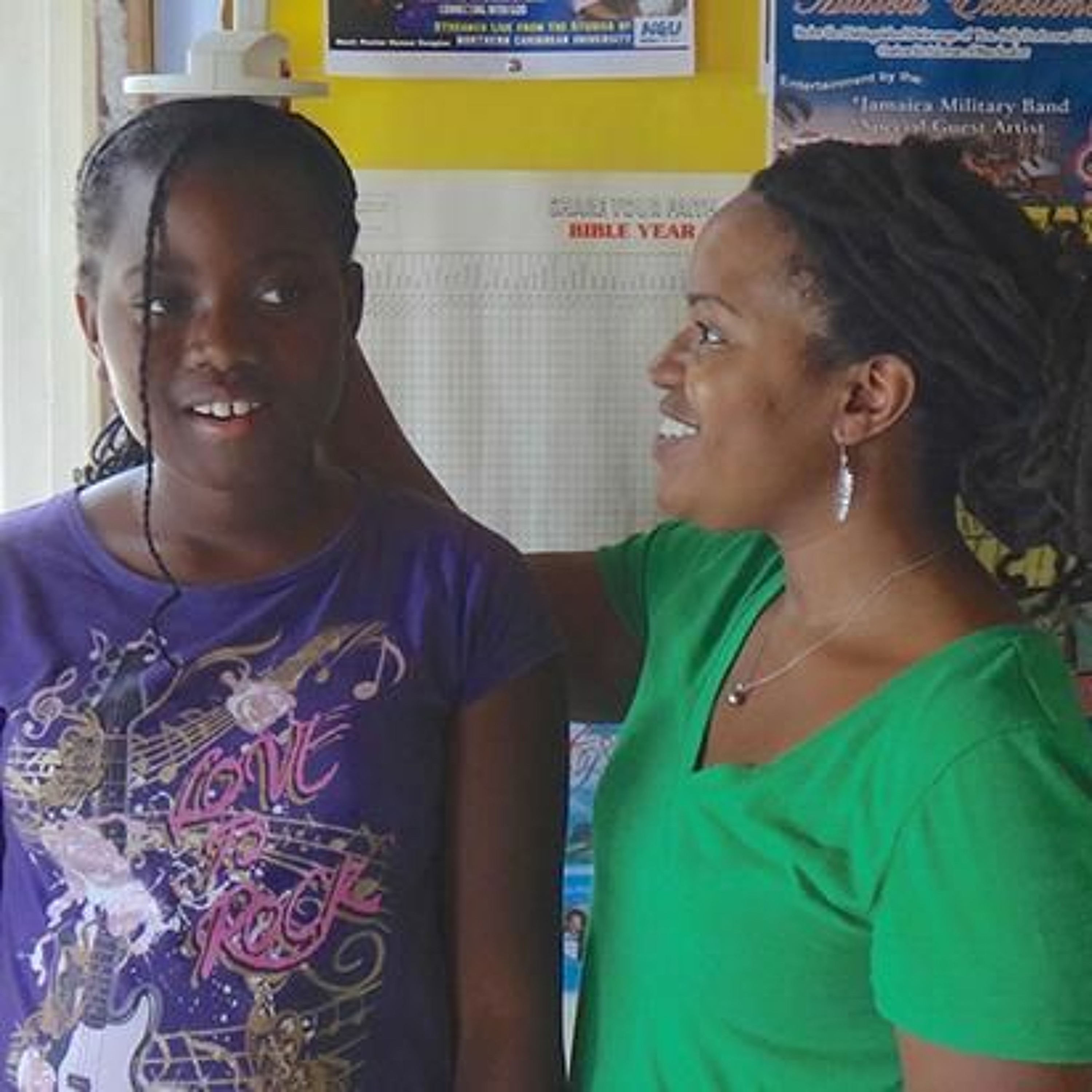
Sausage of ScienceSoS 36 - New Directions in Biocultural Anthropology with Robin NelsonOn this episode of SoS, Chris and Cara talk with Dr. Robin Nelson about her research in Jamaica, and theory and practice in a truly biocultural field. Dr. Nelson is currently an associate professor of anthropology at Santa Clara University, where she utilizes evolutionary theory in studies of human sociality and health outcomes, alongside conventional methods from cultural anthropology.To learn more about Dr. Nelson, check out her faculty page at Santa Clara: https://www.scu.edu/cas/anthropology/faculty/robin-nelson/nelson.html, or follow her on twitter @robingnelson.
The Sausage of Science is produced by Cara Ocobock and Chris...
2019-03-1840 min
NDN Science Show#11 - Bringing Worldviews Together for Biocultural Restoration (live recording from AISES National Conference)This is a special episode where Annie, Turtle, and their fellow grad-student Kaya DeerInWater come together for a "workshop" on the idea of bringing worldviews together for biocultural restoration. We talk about Traditional Ecological Knowledge and Scientific Ecological Knowledge, how these are different/similar, and some examples of successful projects we've come across in our graduate studies. Interestingly enough, we didn't really do much of a workshop... mostly due to the 50-minute timeframe we were working with. But also because we put this together on short notice and overestimated how much we could actually get done. It worked out...
2018-10-2246 min
NDN Science Show#5 - Biocultural RestorationToday’s episode is all about restoration… specifically, Biocultural Restoration and how this field of science brings different disciplines into a synthesized approach. This approach aims to restore and revitalize both ecosystems and the cultures that were originally responsible for them. We discuss everything from our experience with this field of study in our graduate program to definitions and paradigms that surround ecological restoration. We also go over some of the drawbacks to ecological restoration, how biocultural restoration addresses these drawbacks, and how all of this relates to bringing worldviews together and integrating knowledge systems.
Some of the...
2018-07-1239 min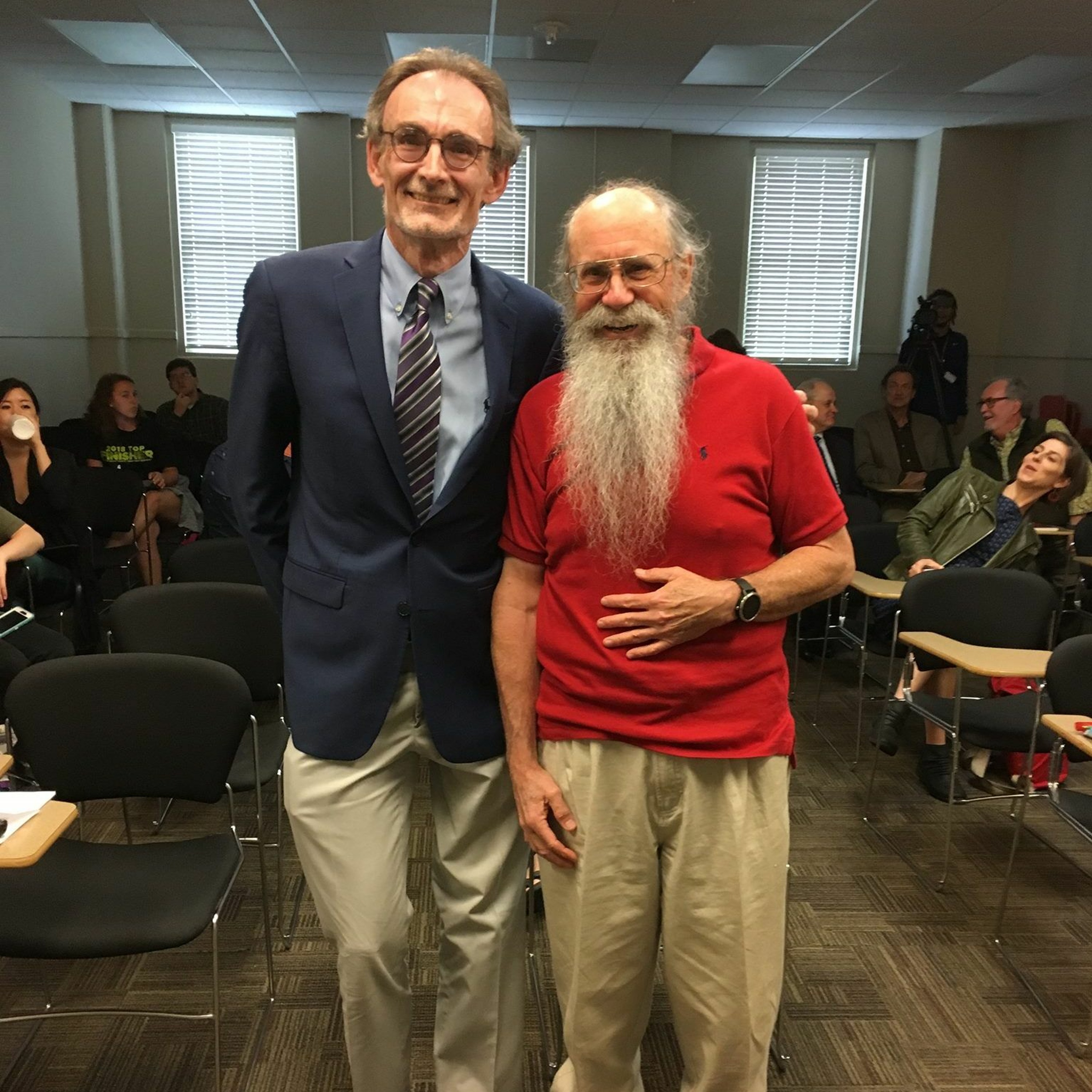
Sausage of ScienceSoS16- Biocultural implications of Soviet collapse & other stories with Bill Leonard (part b)In episode 16, we share an edited version of Bill Leonard's April 24, 2018 James R. Bindon Biocultural Anthropology and Health Series lecture at the University of Alabama entitled "Integrating Evolutionary and Biological Approaches to the Study of Human Diversity and Health." Leonard is the Abraham Harris Professor and Chair of the Department of Anthropology and the Director of the Global Health Studies Program at Northwestern. He is a past president of the Human Biology Association.
In this talk, he provides an overview of human adaptability studies with particular focus on how adaptation to modernization varies among the sites he has worked in...
2018-06-0732 min
Future Primitive PodcastsA Biocultural RegenerationIn this episode Frédérique Apffel-Marglin speaks with Joanna about: the rhythmic connection between humans and the cosmos; a paradize for medicinal and psychoactive plants; origin of the Sachamama Center for Biocultural regeneration; rediscovering the pre-Columbian, anthropogenic "terra preta" (black earth); encountering the Sacred in the most visceral way; healed by the icaros (sacred songs); initiation by the Spirits; healing the inner and outer landscape; towards a holistic, cosmocentric worldview; the complexity of the ayahuasca ceremonies; reverse anthropology on "subversive spiritualities".
The post A Biocultural Regeneration appeared first on Future Primitive Podcasts.
2018-06-0454 min
Future Primitive PodcastsA Biocultural RegenerationIn this episode Frédérique Apffel-Marglin speaks with Joanna about: the rhythmic connection between humans and the cosmos; a paradize for medicinal and psychoactive plants; origin of the Sachamama Center for Biocultural regeneration; rediscovering the pre-Columbian, anthropogenic "terra preta" (black earth); encountering the Sacred in the most visceral way; healed by the icaros (sacred songs); initiation by the Spirits; healing the inner and outer landscape; towards a holistic, cosmocentric worldview; the complexity of the ayahuasca ceremonies; reverse anthropology on "subversive spiritualities".
2018-06-0454 min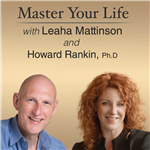
Master Your LifeThe BioCultural Model of WellnessWe know that our minds and bodies are not separate entities but influence each other in many ways. So, if for example, our thoughts affect our health, so must the culture which shapes our health. Neuropsychologist and author Dr Mario Martinez has been researching the link between cultural beliefs and health and has come up with some astounding findings. Listen as Leaha Mattinson and Dr Howard Rankin discuss the biocultural model of wellness with Dr. Martinez.
2017-05-0952 min
New Books in African StudiesLisa L. Gezon, “Drug Effects: Khat in Biocultural and Socioeconomic Perspective” (Left Coast Press, 2012)Khat, the fresh leaves of the plant Catha edulis, is a mild psycho-stimulant. It has been consumed in Yemen, Ethiopia, Eritrea, Djibouti, Somalia for over one thousand years. Khat consumption is an important part of Yemeni social and political life. During the early part of the twentieth century, Yemeni dockworkers brought khat to Madagascar, where other members of the Malagasy population have adopted its use.
In her excellent book Drug Effects: Khat in Biocultural and Socioeconomic Perspective (Left Coast Press, 2012), Lisa L. Gezon, Professor and Chair in the Department of Anthropology, University of West Georgia, analyzes the...
2014-11-281h 22
New Books in Drugs, Addiction and RecoveryLisa L. Gezon, “Drug Effects: Khat in Biocultural and Socioeconomic Perspective” (Left Coast Press, 2012)Khat, the fresh leaves of the plant Catha edulis, is a mild psycho-stimulant. It has been consumed in Yemen, Ethiopia, Eritrea, Djibouti, Somalia for over one thousand years. Khat consumption is an important part of Yemeni social and political life. During the early part of the twentieth century, Yemeni dockworkers brought khat to Madagascar, where other members of the Malagasy population have adopted its use.
In her excellent book Drug Effects: Khat in Biocultural and Socioeconomic Perspective (Left Coast Press, 2012), Lisa L. Gezon, Professor and Chair in the Department of Anthropology, University of West Georgia, analyzes the...
2014-11-281h 22
Center for Mind, Brain, and CultureLecture | Daniel Lende | Neuroanthropology and the Biocultural Approach: Understanding Human Brain Variation in the WildWe now recognize that our brains are more plastic than once imagined. Research in neurobiology has shown that how our brains function is shaped by reciprocal influences between genetics, development, behavior, culture, and environment. However, much of this research has been done in laboratory and clinical settings, without concurrent examination of how brains vary in the wild. This talk will outline the field of neuroanthropology using prominent examples including addiction and balance, and then reflect on how this synergy of neuroscience and anthropology emerged out of the biocultural approach pioneered at Emory. November 13, 2014
If you would like...
2014-11-131h 18